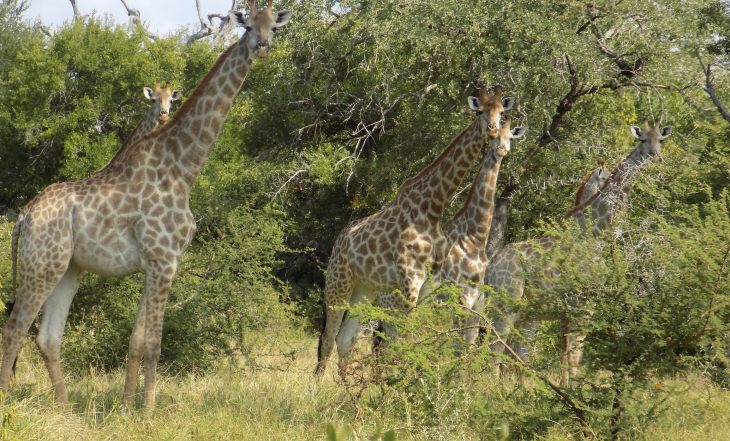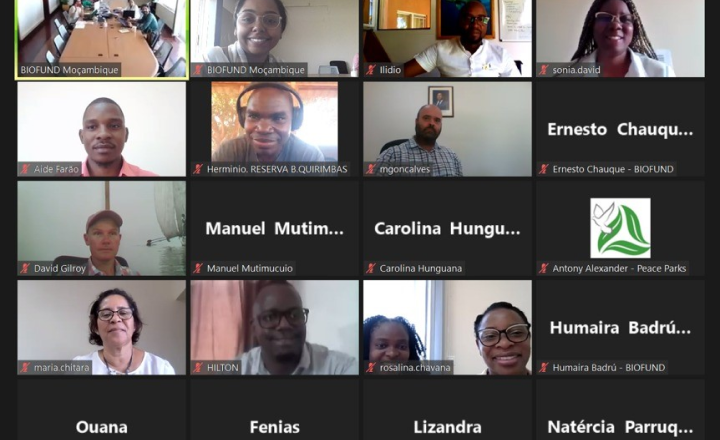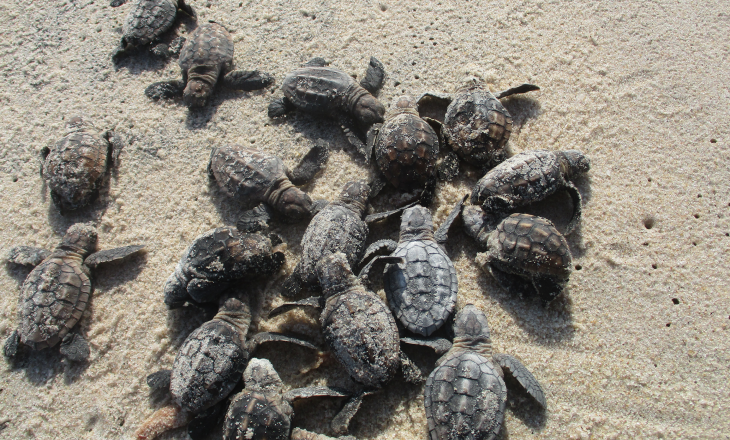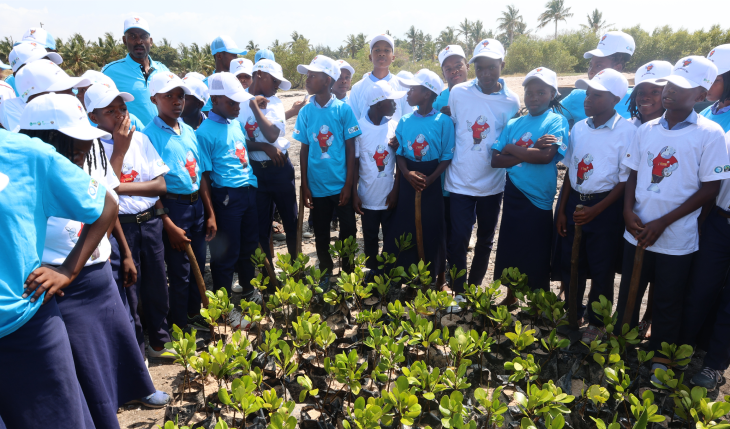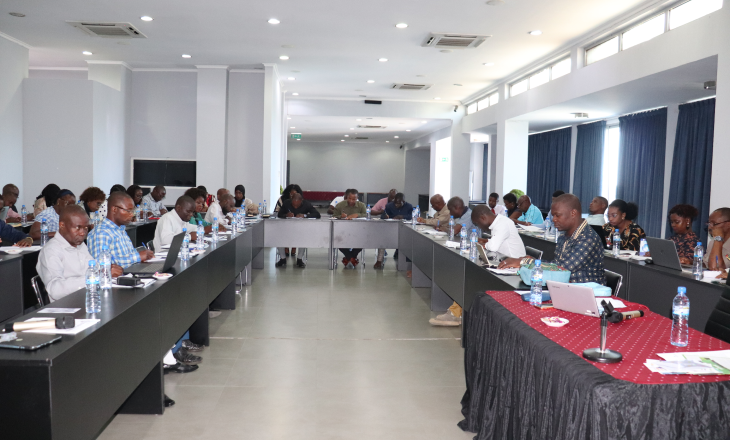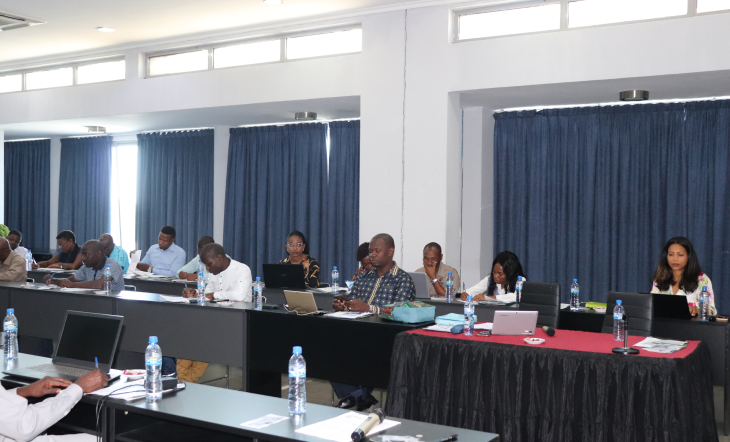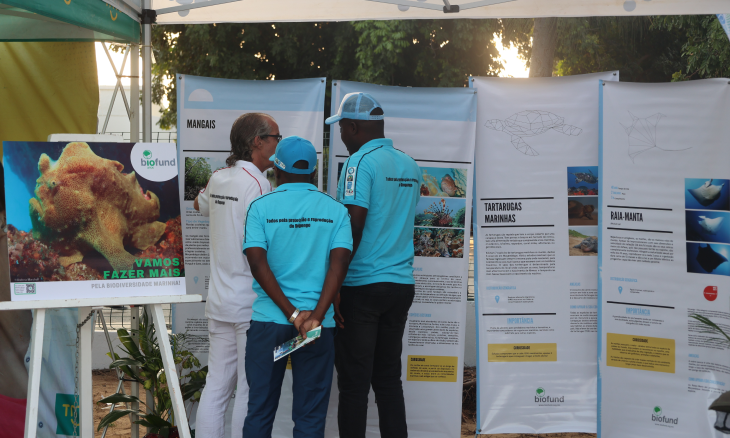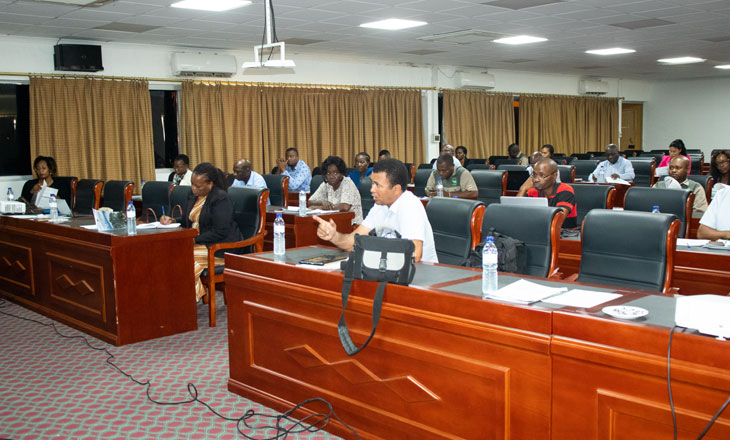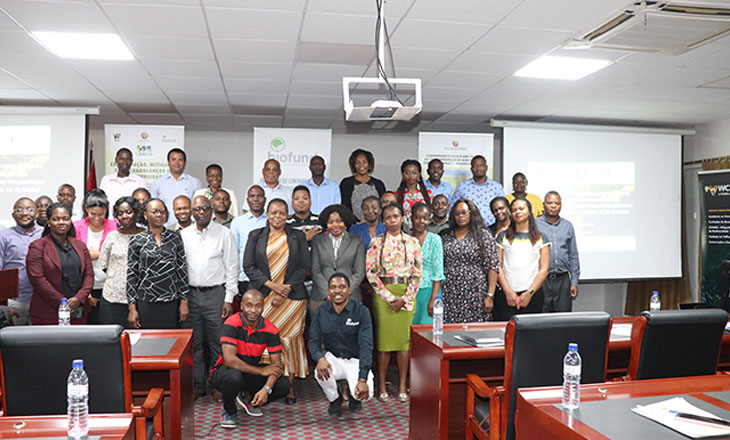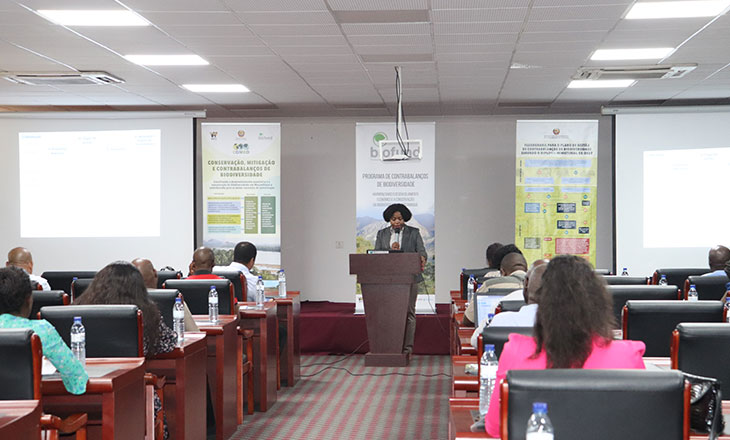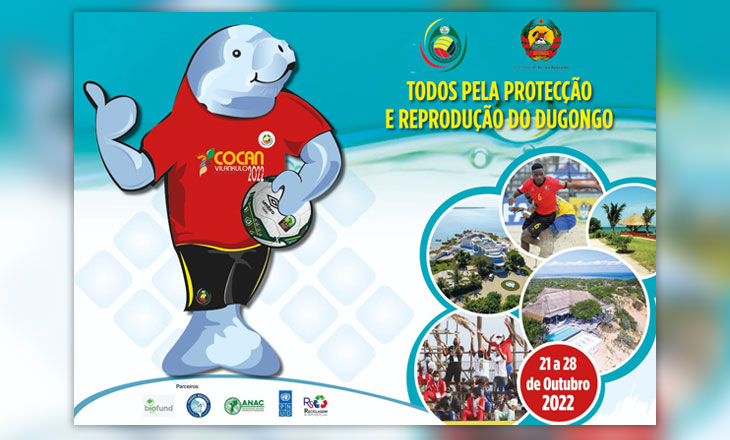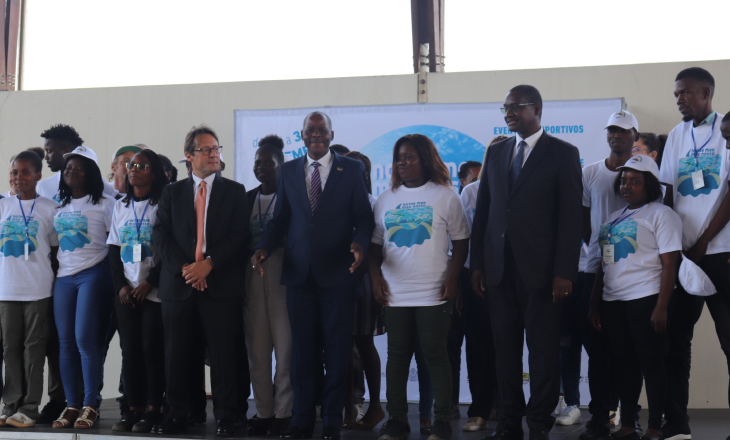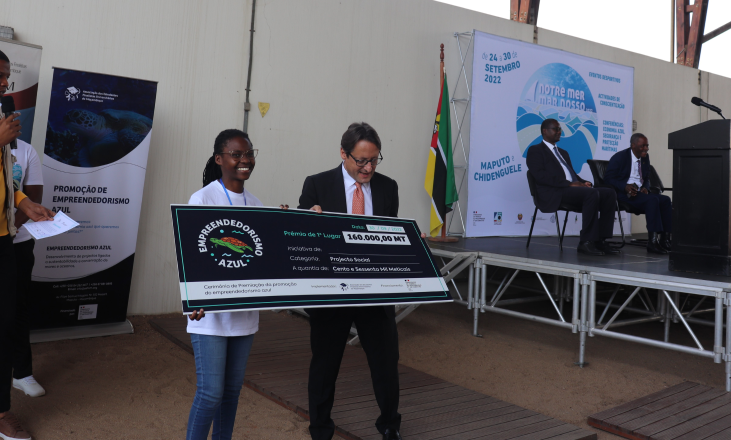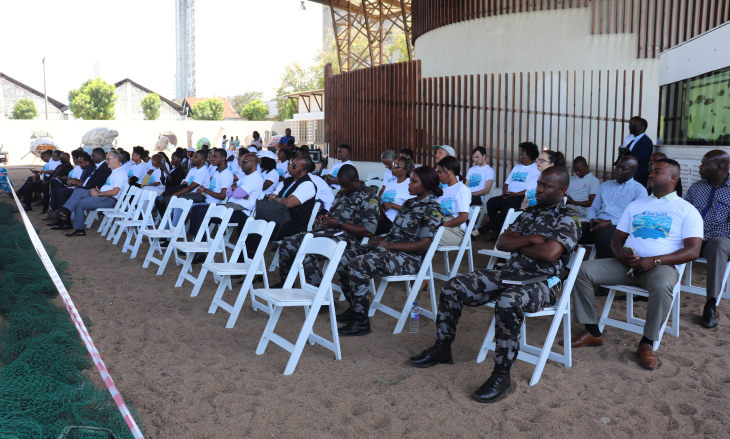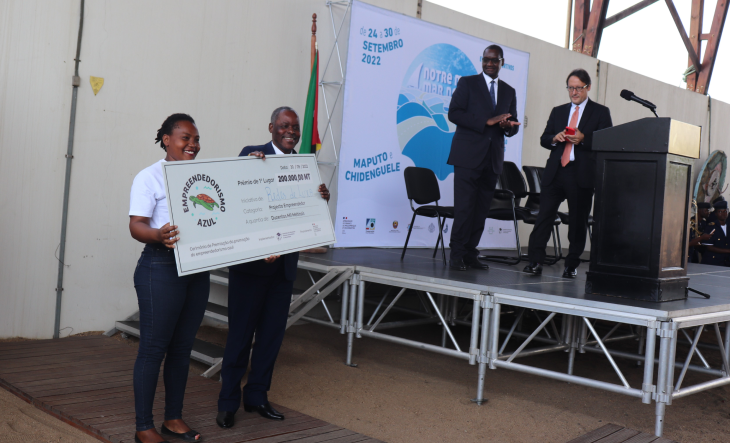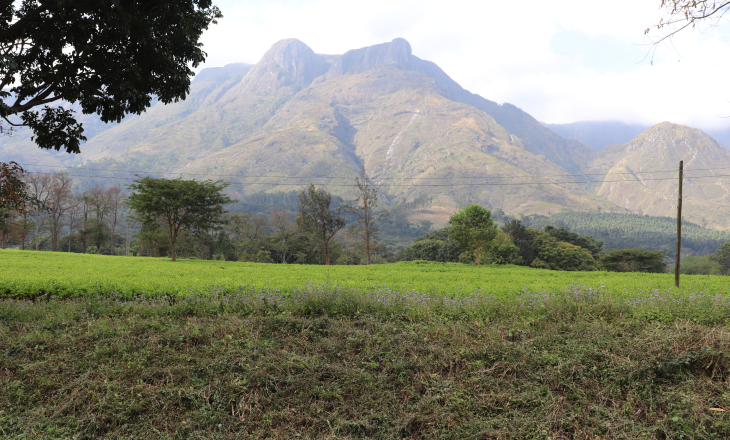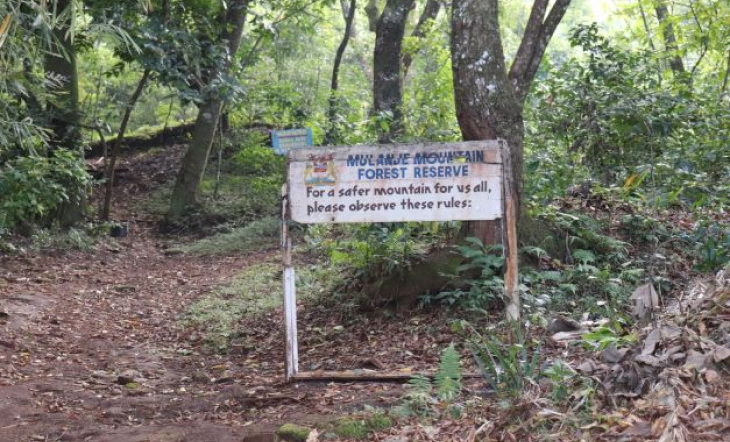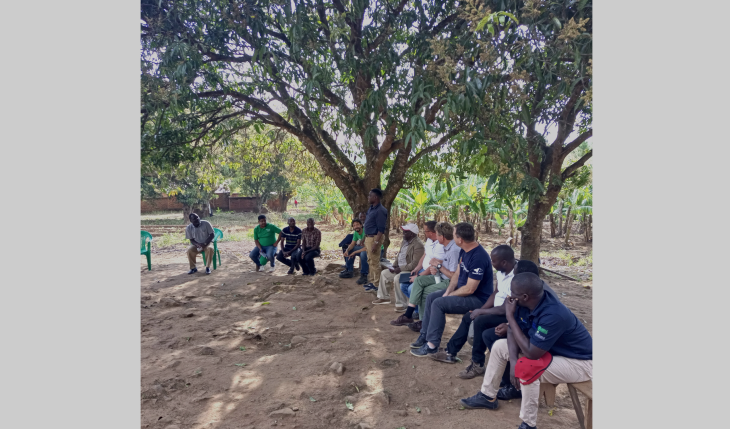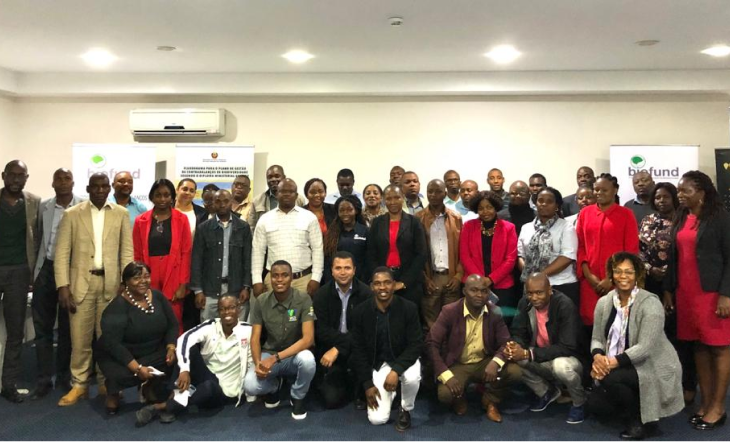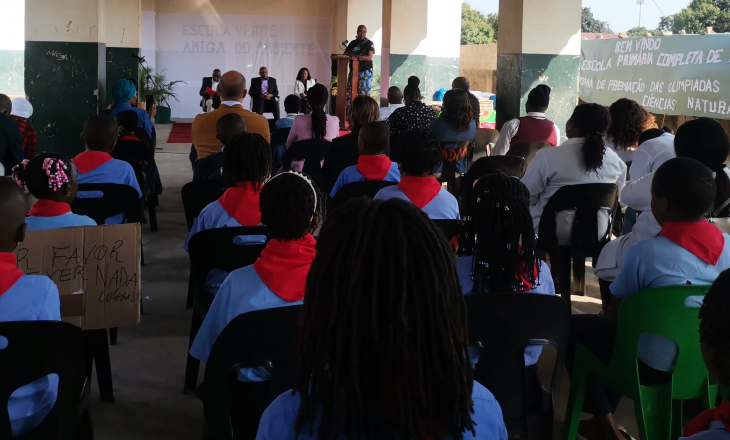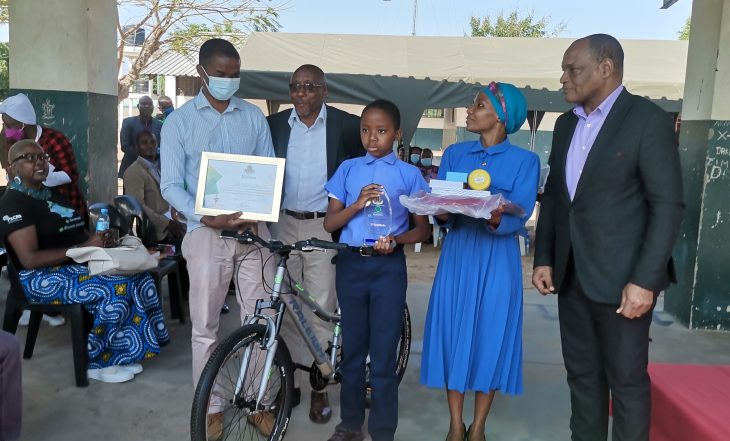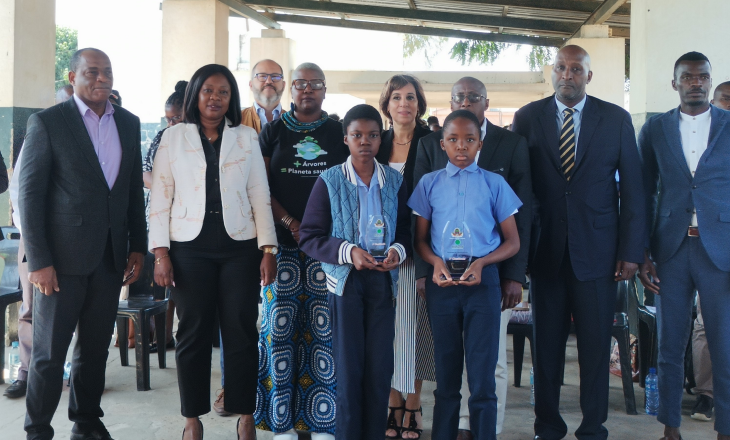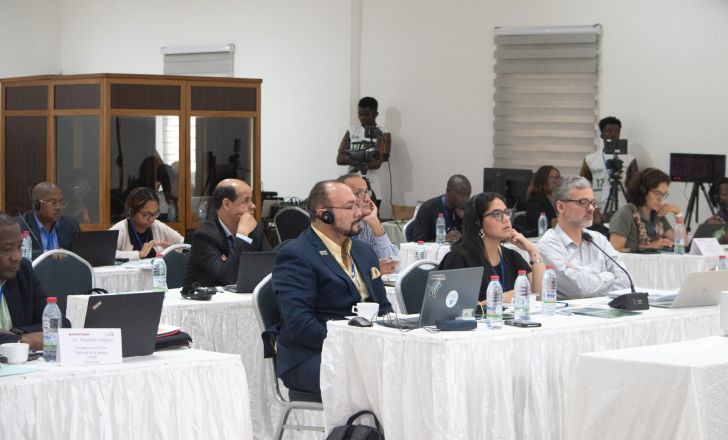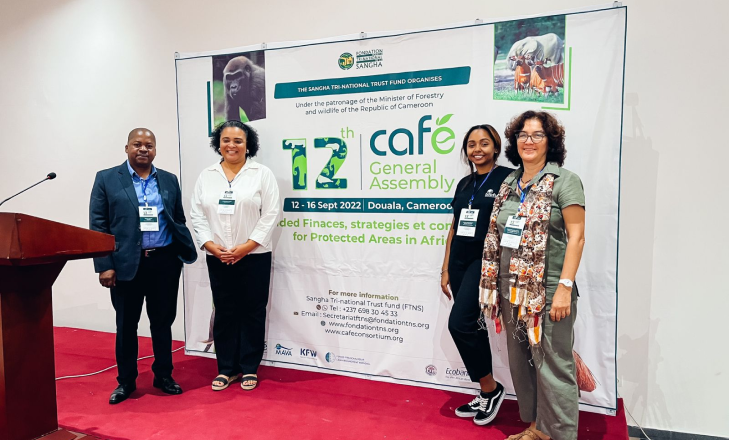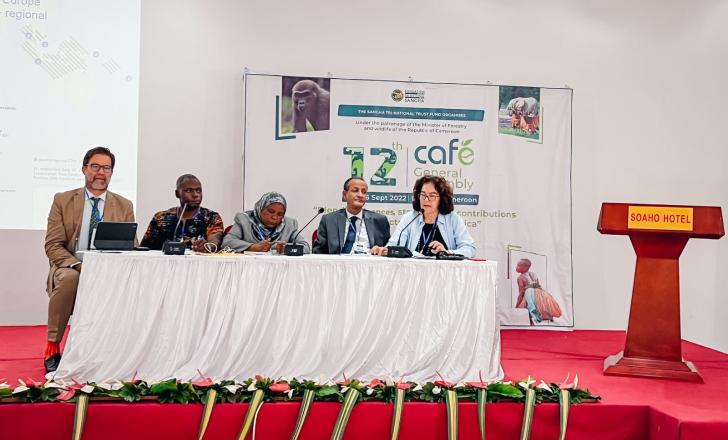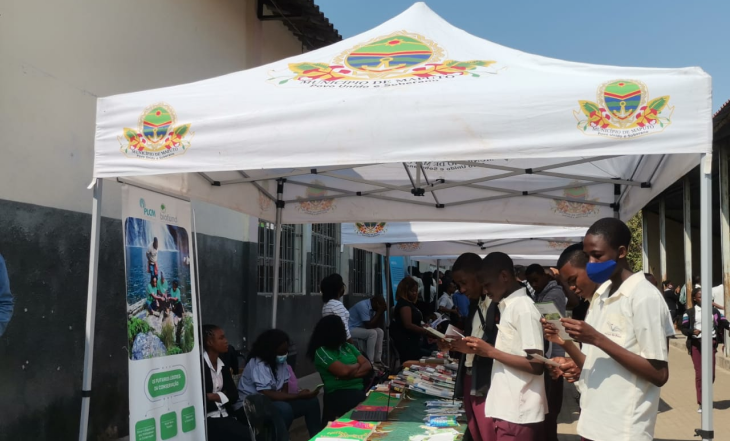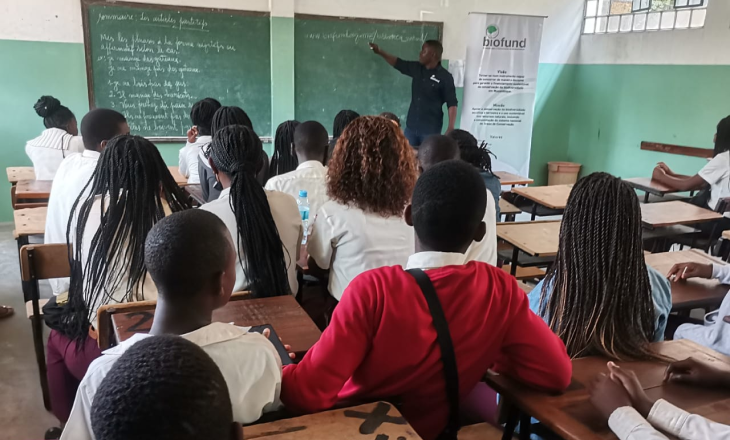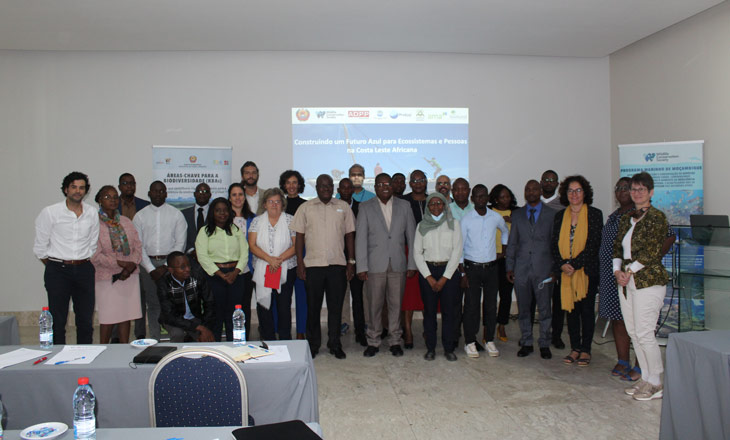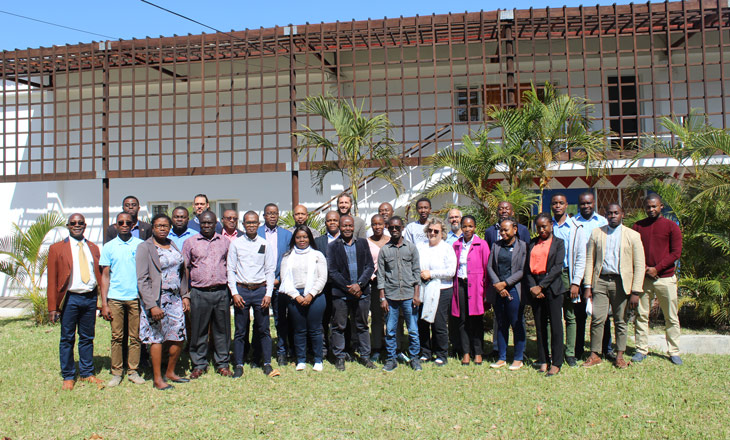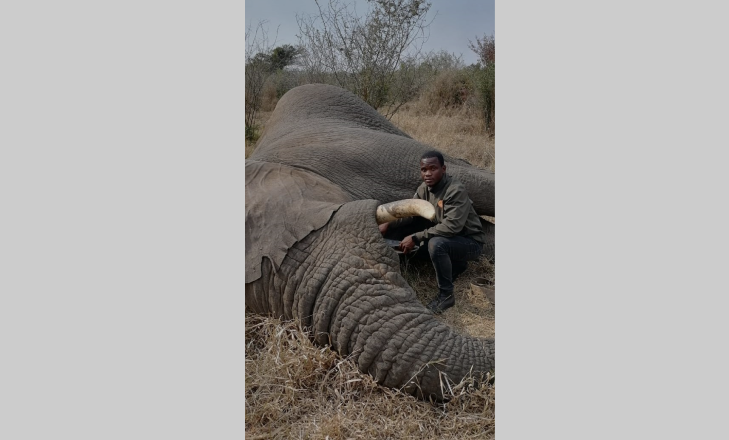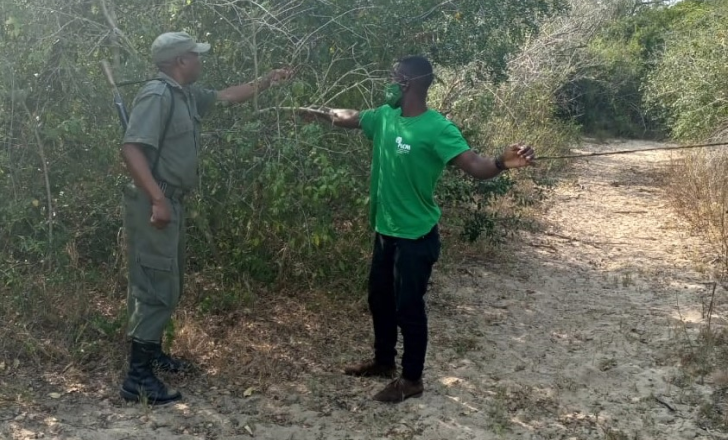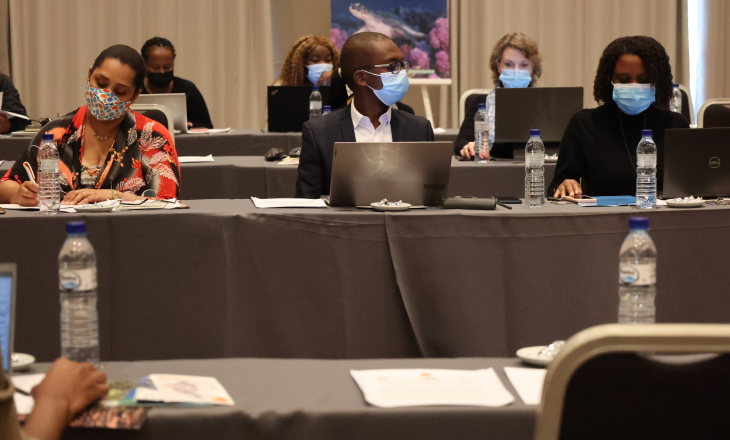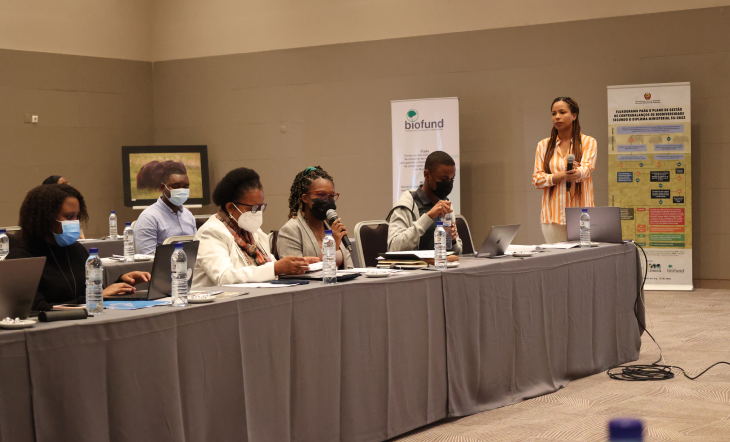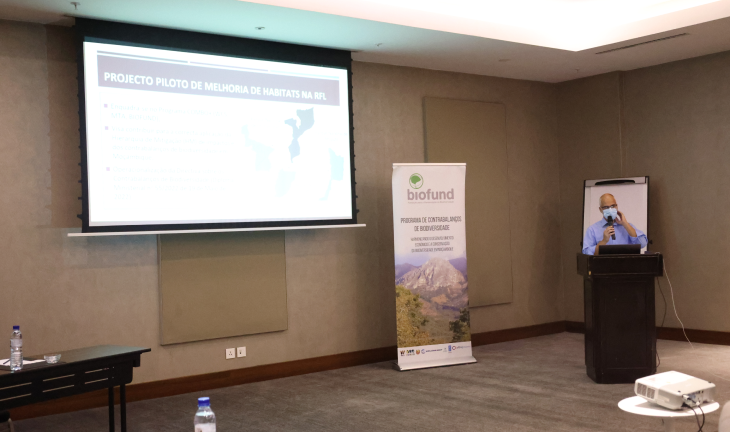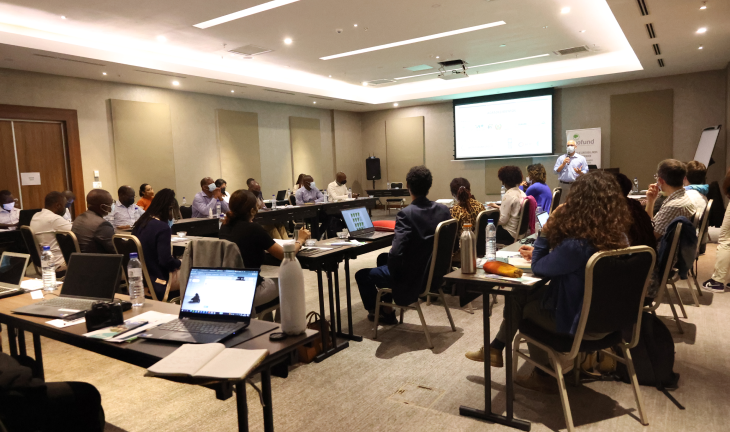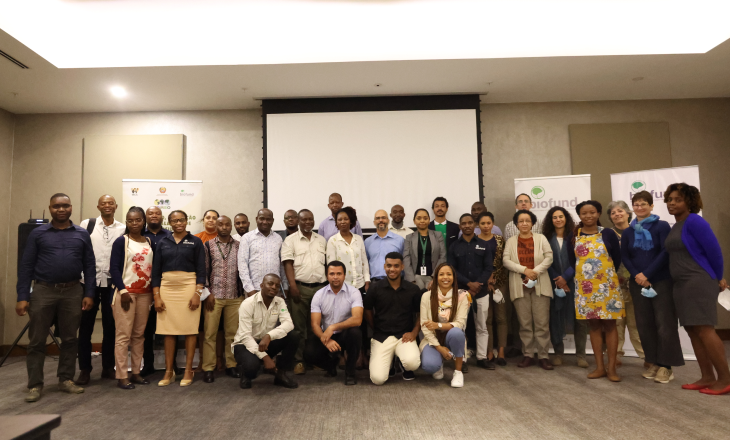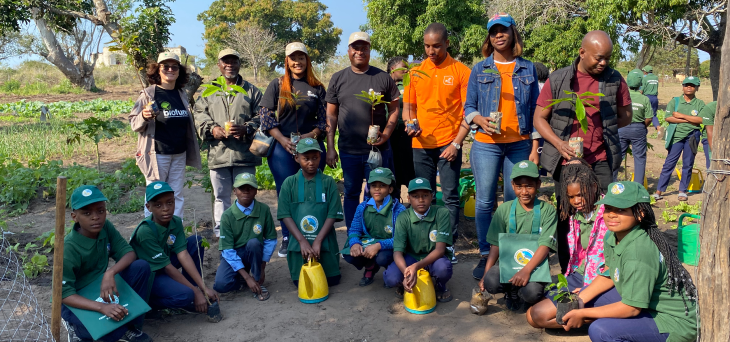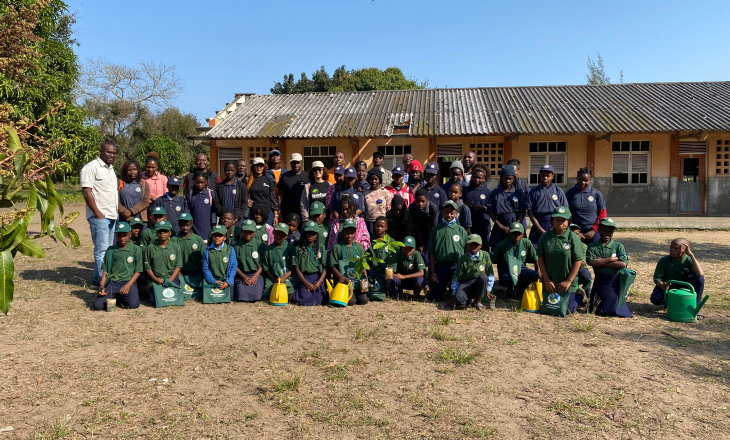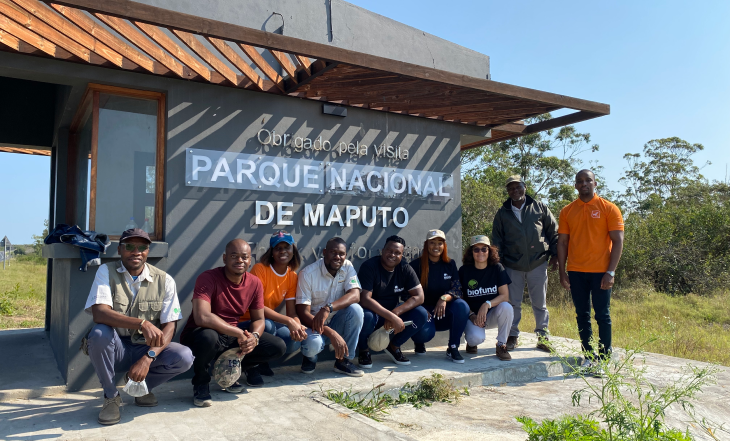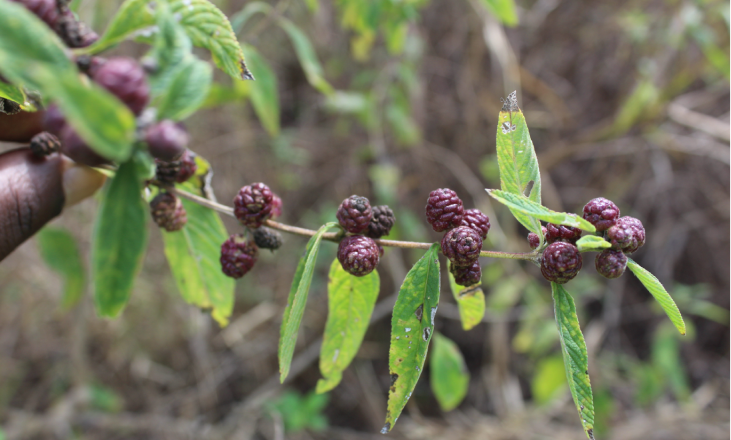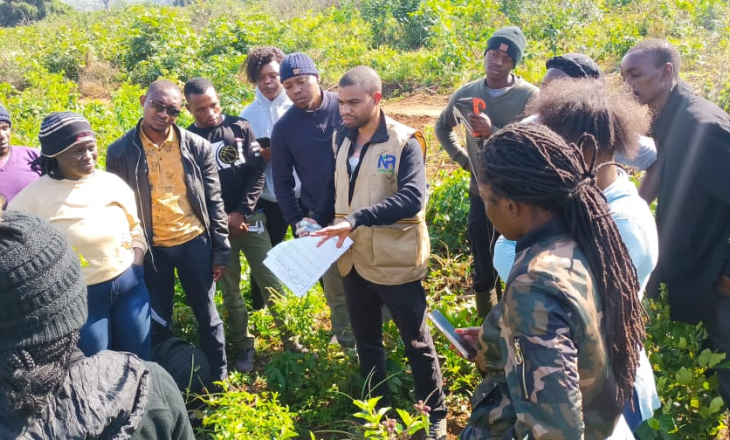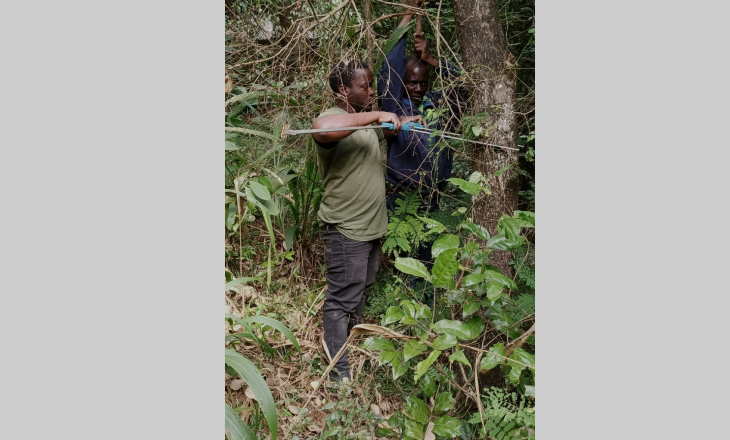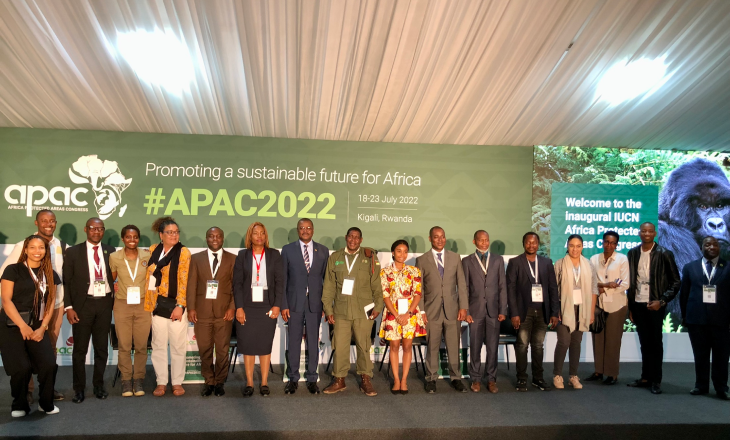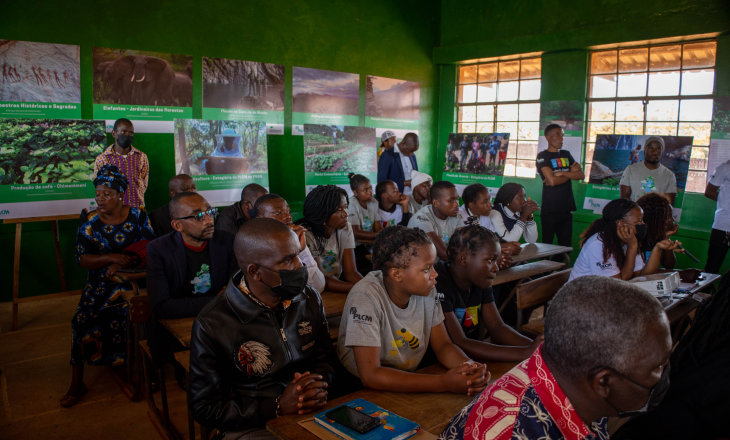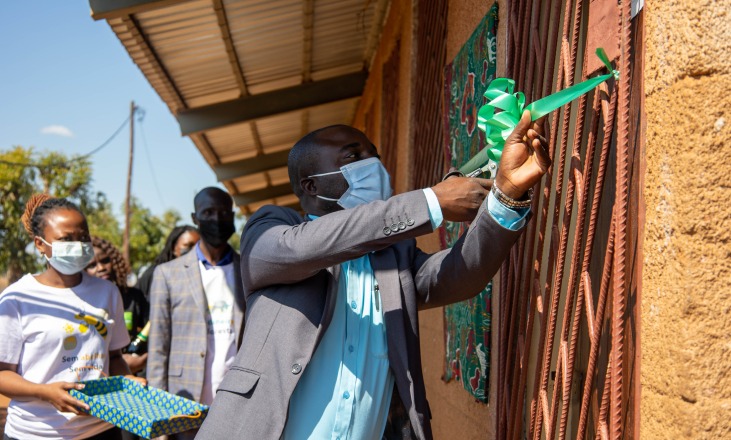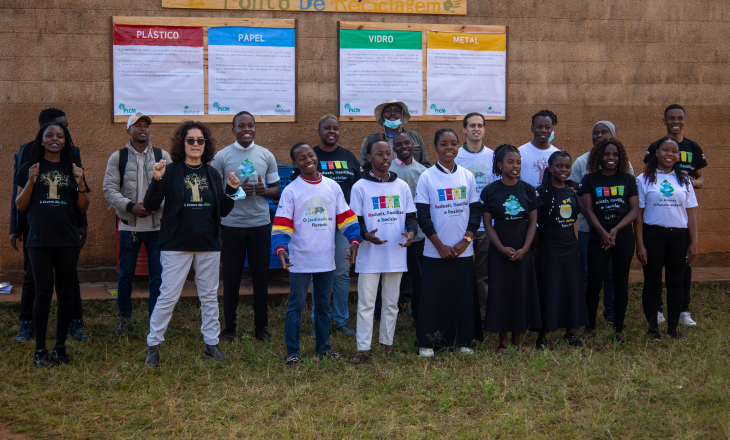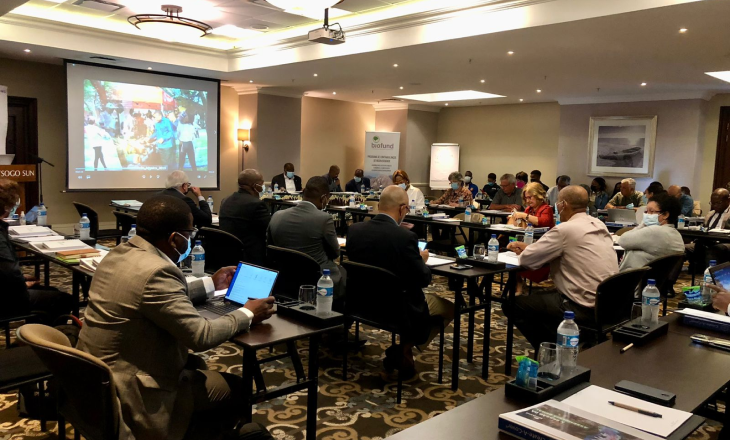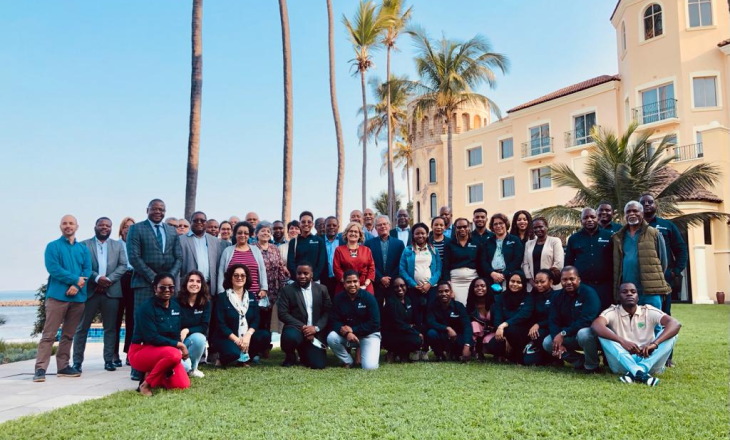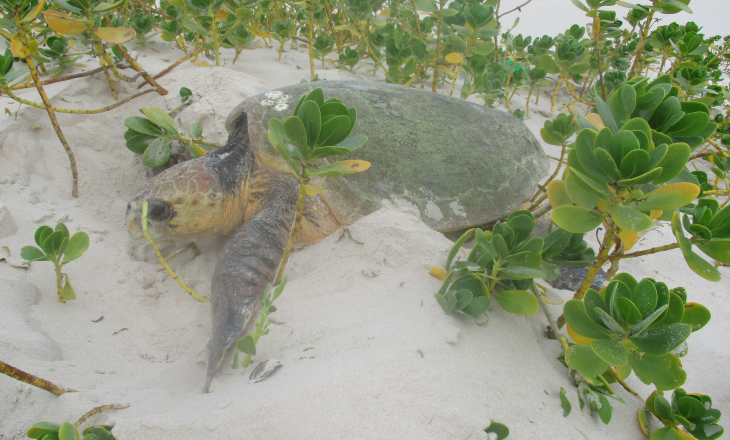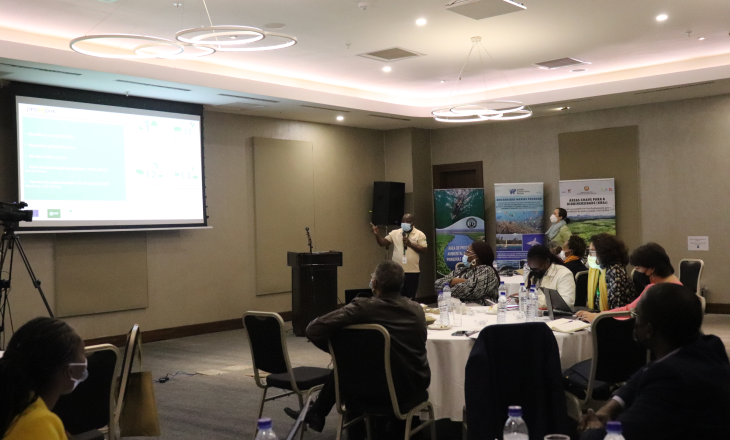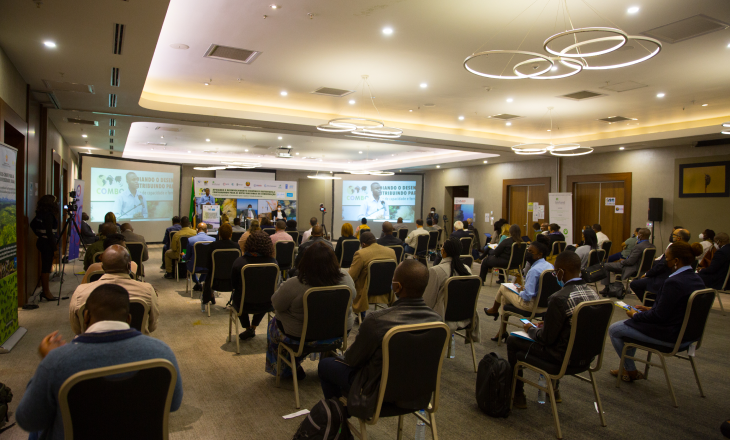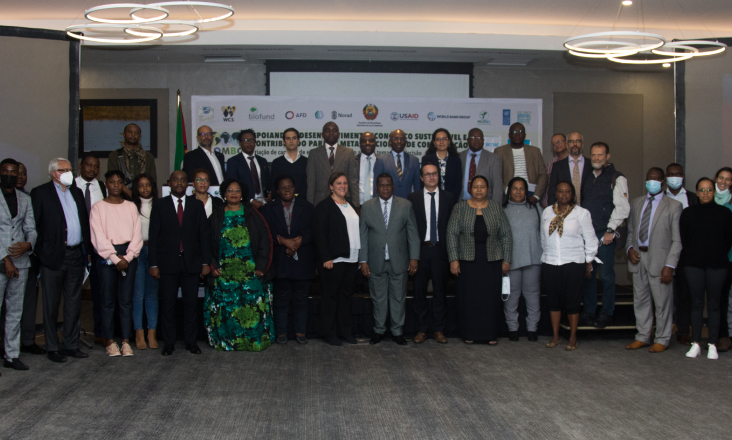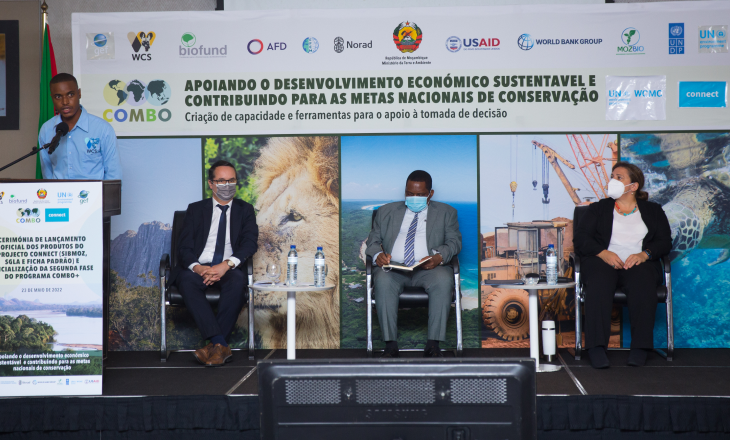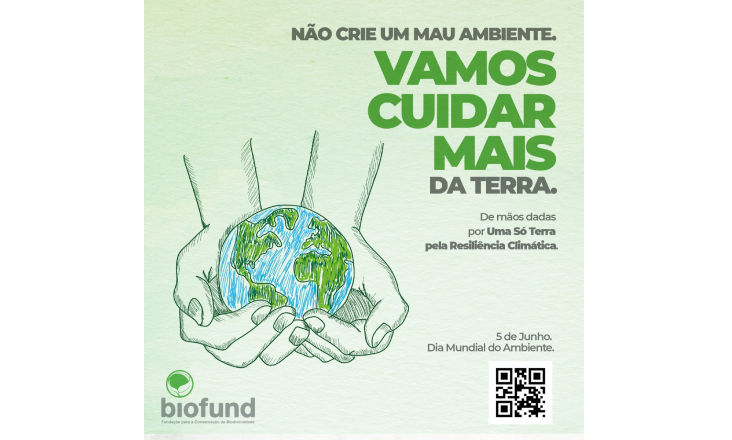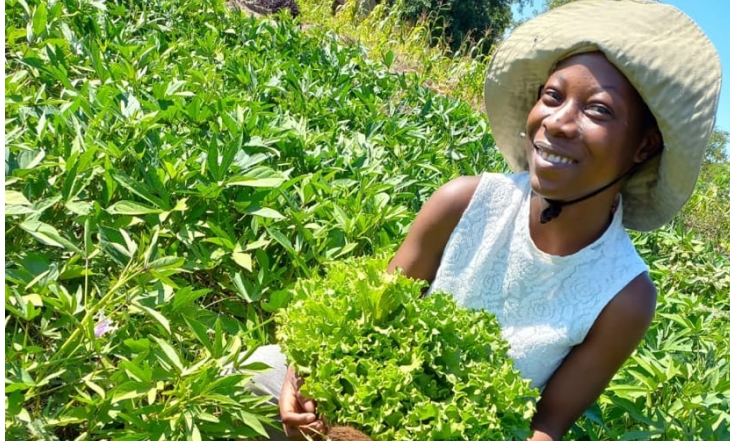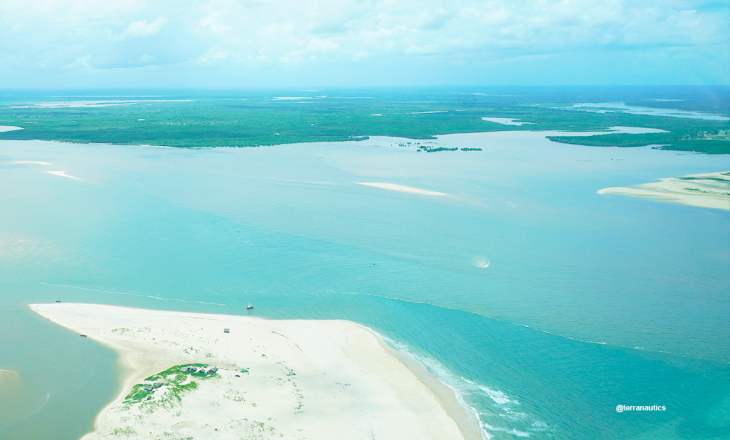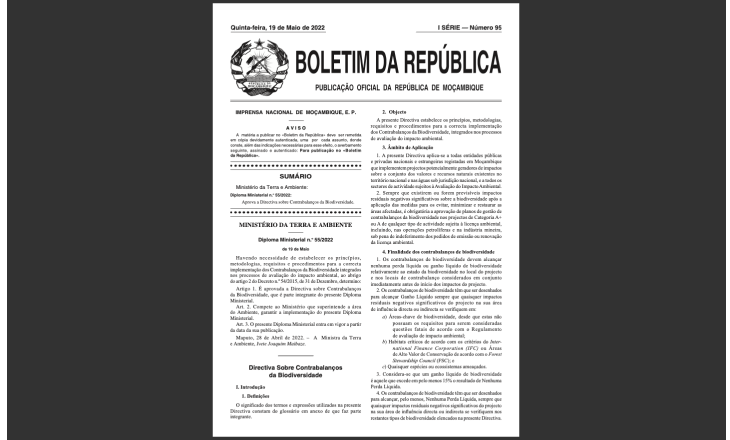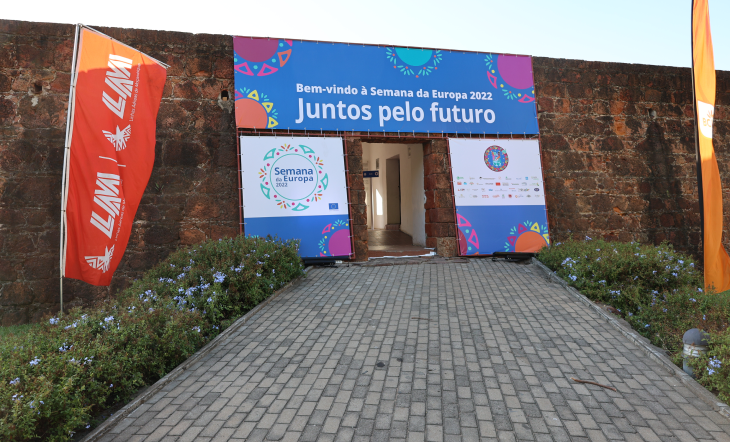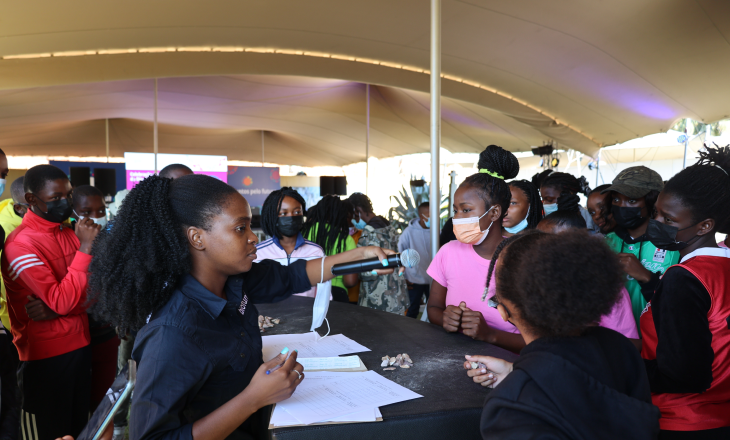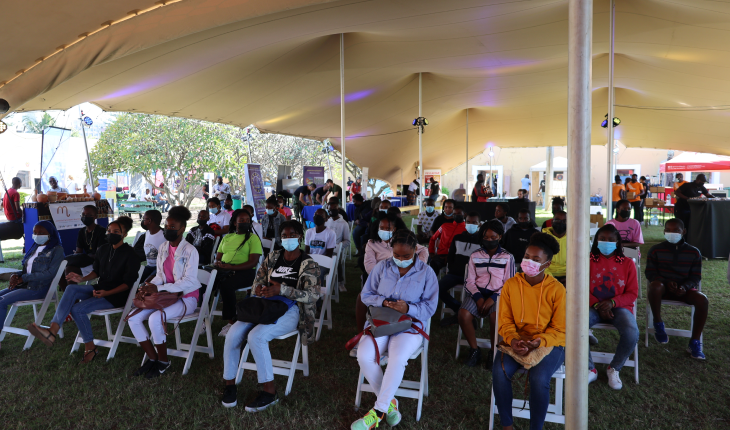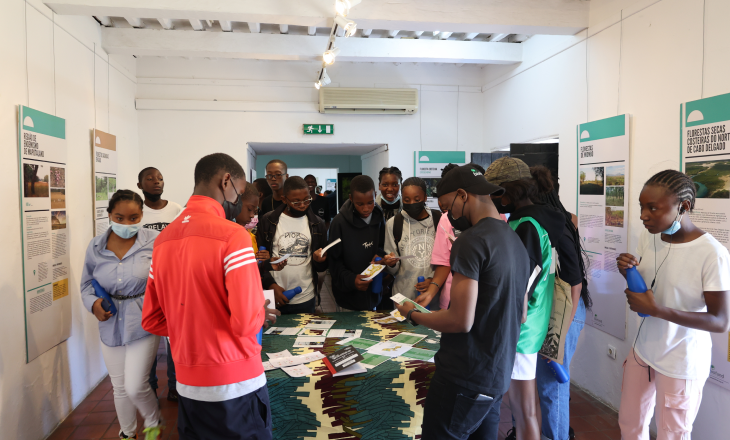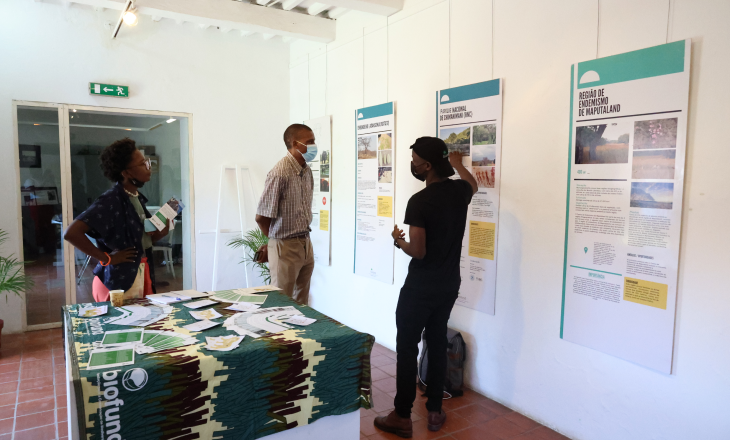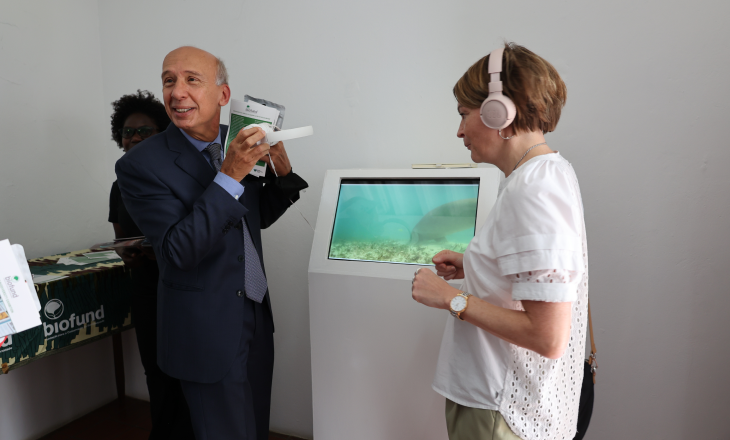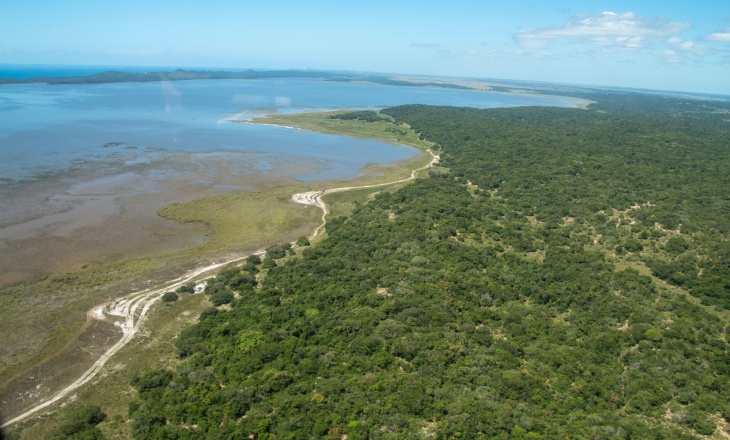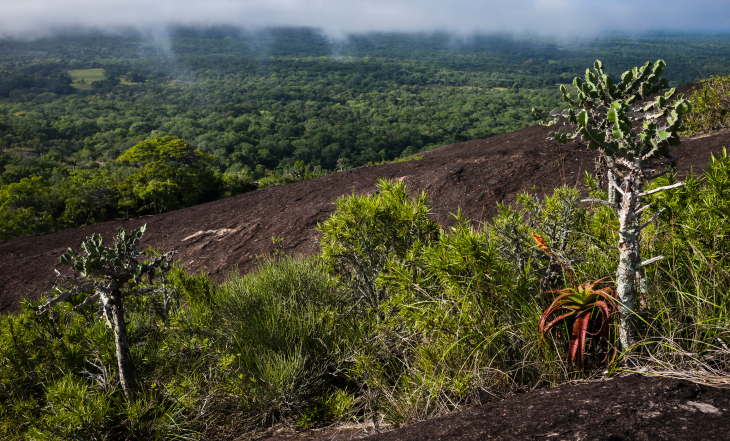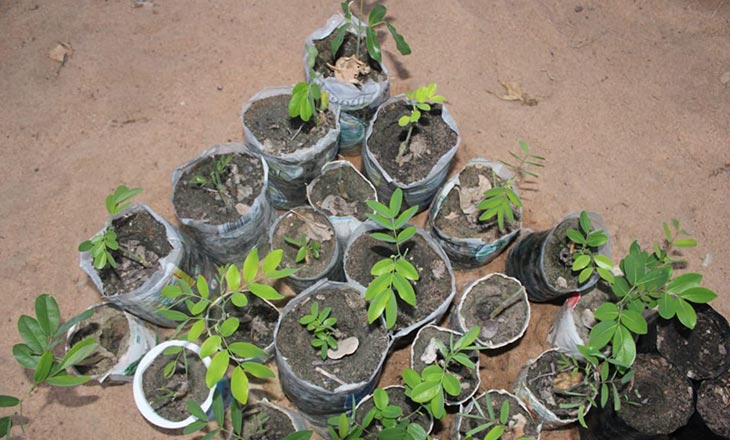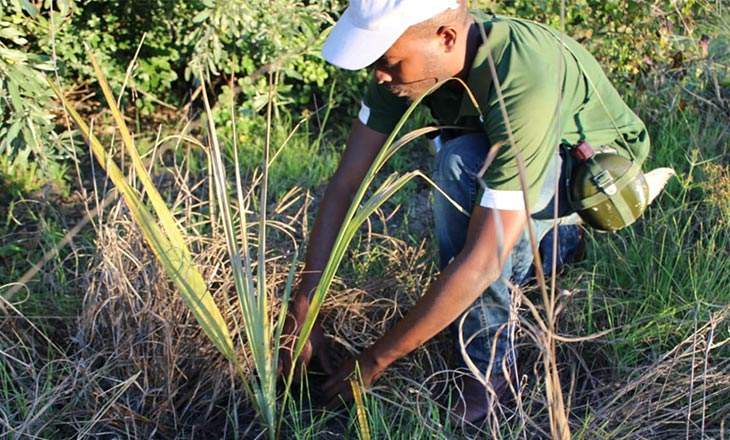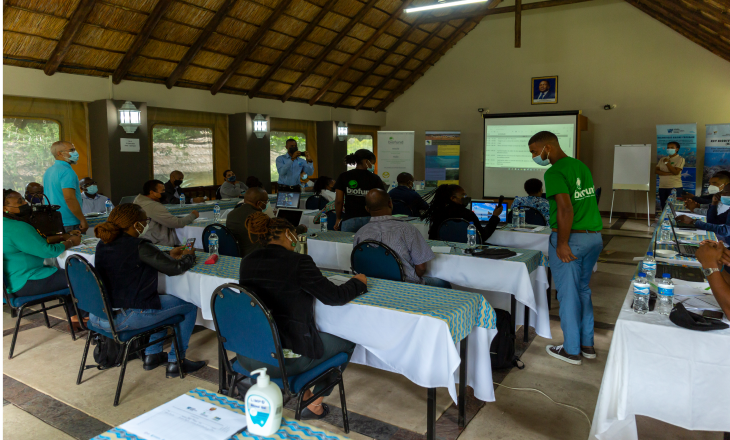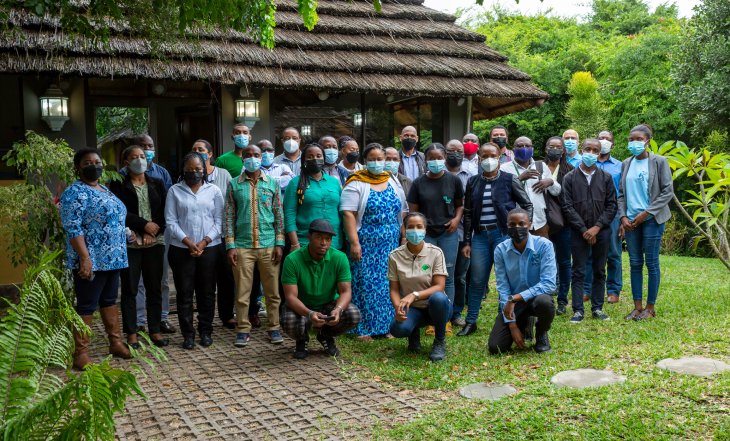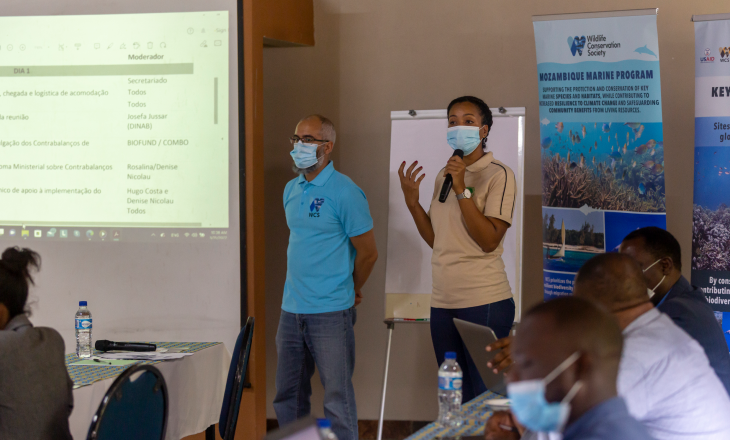The Bee Project, part of the “Protected Areas and Elephant Conservation in Mozambique” (APEM) project, funded by the French Development Agency (AFD) and implemented by the Foundation for the Conservation of Biodiversity (BIOFUND) from 2016 to 2021, resulted in the protection of about 3 million hectares of biodiversity across 8 Conservation Areas. This information was shared during the virtual project review seminar held on 22 November 2022, which brought together the beneficiary Conservation Areas, donors, and partners.
Bee Project Results in the Protection of 3 Million Hectares of Biodiversity
In this project, BIOFUND channelled over 2.4 million dollars to support 9% of the total operational costs in 8 marine and terrestrial Conservation Areas, namely: Limpopo National Park (PNL), Quirimbas National Park (PNQ), Gilé National Park (PNAG), Cabo de São Sebastião Total Protection Zone (Vilanculos Wildlife Sanctuary – SBV), Zinave National Park (PNZ), Bazaruto Archipelago National Park (PNAB), and Maputo National Park (PNAM), which encompasses the former Maputo Special Reserve (REM) and Ponta do Ouro Partial Marine Reserve (RMPPO).
The disbursed amount had a significant impact on the beneficiary Conservation Areas, especially in actions aimed at biodiversity protection and community development. It contributed to the increase in the number of patrols carried out, the promotion of income-generating activities for communities aligned with biodiversity conservation practices such as beekeeping, technical training, and environmental awareness for local communities. These Conservation Areas, both publicly and privately managed—some with co-management support—created opportunities for fruitful exchanges of experiences among themselves.
Through the Bee Project, it was possible to improve the living conditions of some families living around and within the Conservation Areas, through the hiring of community members for seasonal work such as road and infrastructure maintenance, ecological monitoring, among others. In the Vilanculos Wildlife Sanctuary, some seasonal workers later became permanent rangers of that Conservation Area. During the seminar, PNAB highlighted the operationalisation of patrol activities and environmental awareness through theatre as some of the main positive impacts of the project. These actions contributed to reducing poaching and improving the relationship between local communities and the Conservation Areas.
Regarding technical capacity building, the project ensured the annual delivery of training courses to managers of the beneficiary Conservation Areas in planning and financial management. This training added value to improving the administrative and financial capacity of the beneficiary areas, having increased by 35% since the beginning of the project (between 2016 and 2020).
During the project review seminar, beneficiaries highlighted the flexibility in accessing and applying project funds, which helped drive the activities carried out, especially in PNAM, where the administrator emphasized the complementarity between existing funding sources to achieve conservation programme goals in that Conservation Area. Also under this initiative, the beneficiary areas promoted synergies with the Leadership Program for the Conservation of Mozambique (PLCM), retaining some of the programme’s young interns.
The Bee Project was BIOFUND’s first major financing action for Conservation Areas, with the main objective of supporting non-salary recurrent costs. It was funded 80% by AFD and 20% by BIOFUND’s own resources. This project made it possible to test BIOFUND’s first procedures and monitoring and evaluation tools, as well as to train and build the capacity of beneficiaries, in synergy with other support such as the German Cooperation through KfW. It is important to note that this project marked the beginning of the Post-Bee Project, which ensures the long-term continuation of BIOFUND’s support to all 8 initial beneficiaries.
The strong performance of this project was vital in later leveraging additional support from other donors for the Conservation Areas through BIOFUND, such as the World Bank (MozBio project) and the European Union (PROMOVE Biodiversity project), demonstrating BIOFUND’s disbursement capacity. It was also one of the key factors in the growth of BIOFUND, which celebrates 10 years of existence.
HOW SPORTS CAN INFLUENCE ENVIRONMENTAL AWARENESS: EXPERIENCES FROM THE 2022 BEACH FOOTBALL CAN
The African Beach Soccer Championship, held from 21st to 28th October 2022, in the Tourist Town of Vilanculo, Inhambane province, gathered around 18,000 people including players, top individuals in the Football field and others, supporters and general public, who, in addition to watching football, were part of an environmental awareness chain for the benefit of marine biodiversity, especially the Dugong.
By the way, how can sports influence environmental awareness and promote changes in attitudes for better conservation of biodiversity?
For the National Beach Soccer coach – Abineiro Ussaca, sports can play a key role in raising awareness of the society and in particular of the soccer supporters to contribute to a clean and healthy environment, especially for marine biodiversity.
“As sportsmen, we are a fundamental key to influence people in the protection of the environment, and we should be an example for the society. We have, for example, the duty to replace all the disposable containers that we use and deposit them in the right place, since all the solid waste left outdoors ends up in the sea, and when such waste goes into the sea, they cause irreparable damage to the species that live in that habitat.”
Inside Vilanculo arena, where the 2022 Beach Soccer CAN took place, the Foundation for the Conservation of Biodiversity (BIOFUND), set up an exhibition of marine biodiversity, which during the championship was a mechanism for disseminating information on the relevance of the habitats for marine species and of both for the mankind. Still within the scope of environmental awareness in Vilanculo, BIOFUND, the Ministry of Land and Environment (MTA), the National Administration of Conservation Areas (ANAC), the Bazaruto Archipelago National
Park (PNAB) and Reciclagem e Serviços, worked together in a series of environmental education activities aimed at protecting the oceans and marine life. Highlights include cleaning the beaches, planting mangroves, lectures at primary and secondary schools in Vilanculo, and a special lecture aimed at players from the Mozambican Beach Soccer team. These actions had a significant impact on young students, athletes and the local public, and reached around 6000 people directly.
“We welcome the guidelines from BIOFUND and partners, as sportsmen and digital influencers. We are going to disseminate this message of environment conservation, we want to convey to other people how important it is to conserve biodiversity. We appreciate this initiative which has awakened our environmental awareness and responsibility. We will do our part!” Ângelo Tomas, Captain of the National Beach Soccer Team.
Football is a mass sport with great educational potential, capable of contributing to the training of citizens and influencing behaviour change. In this way, the African beach soccer championship was a vehicle for promoting the conservation and protection of marine biodiversity.
“These results were achieved because there was an engagement of multiple teams. Regardless of our differences, we all look to the same goals. The initiative was very well aligned and the team work was excellent!” Stressed Armado Nguenha – Administrator of the BANP.
Nampula Hosts training of Government technicians on the Ministerial Diploma on Biodiversity Offsets (55/2022)
It took place Between the 25th and 26th of October in the City of Nampula, in the Province of Nampula, the training of technicians from the Provincial Services and Directorates of the Environment and of the Technical Commission for Environmental Impact Assessment of Zambézia and the north of the country on the new Ministerial Diploma of Biodiversity Offsets in Mozambique (Diploma 55/2022).
Biodiversity offsets are required by the Environmental Impact Assessment Regulation (Decree 54/2015) and recently regulated by the Biodiversity Offsets Directive ( Ministerial Diploma No. 55/2022 of 19 May) . The approval of this legal instrument places Mozambique on the list of pioneer countries in Africa in the creation and consolidation of the legal framework for environmental impact assessment, promotion of the mitigation hierarchy and biodiversity offsets, as measures to harmonize economic development in the country.
The training was attended by 48 participants, including government technicians representing the National Directorate for the Environment (DINAB), Provincial Services for the Environment (SPA), Provincial Services for Economic Activities (SPAE), Provincial Services for Infrastructure (SPI), Provincial Directorates of Industry and Commerce (DPIC), Provincial Directorate of Territorial Development and Environment (DPDTA), Provincial Directorate of Culture and Tourism (DPCT), Provincial Directorates of the National Agency for Environmental Quality Control (AQUA), BIOFUND and WCS .
This national training program for government technicians and CTA members began in 2021 with initial modules in October and November, later in March 2022, entering a second phase from September, with training on the 20 and 21 in Maputo City, 11 and 12 October in Beira City and, finally, between 25 and 26 October in Nampula City, thus covering technicians from the environment sector and the Technical Assessment Commission from across the country.
This initiative is led by the National Directorate for the Environment (DINAB) with the support of the COMBO+ Program (partnership between the Government of Mozambique, WCS and BIOFUND) and with funding from AFD/FFEM, World Bank/MozBio 2 Project and UNDP/ BIOSFAC Project.
For more information on the Biodiversity Offset Program click here aqui
BIOFUND Exhibition at the CAN Inspires Youth to Do More for Biodiversity
The BIOFUND exhibition on marine and coastal biodiversity, showcased at the 2022 Beach Soccer Championship arena since 21 October and running in Vilanculos until 28 October 2022, highlights the importance of marine species and their habitats and draws attention to the need for people to do more to protect Mozambique’s biological diversity.
The nearly 900 visitors who have passed through so far, particularly young people, have shown interest in doing more for biodiversity.
“Before seeing this marine exhibition, I didn’t fully understand the importance of the oceans and marine life. Today, I realise that it is necessary to conserve mangroves to ensure the survival of marine species that are important for our livelihood and for the sustainability of tourism. This is important information, and I will share it with others who still don’t know what they should do to help protect biodiversity!” said Custódio Inácio, a 17-year-old resident of Vilanculos.
This exhibition, which is part of BIOFUND’s 10th-anniversary celebration campaign, also received visits from several high-profile figures, including the President of the Republic Filipe Jacinto Nyusi, Governor of Inhambane Daniel Chapo, Administrator of Vilanculos Edmundo Galiza Matos Jr., Secretary of State for Sports Carlos Gilberto Mendes, President of the Mozambican Football Federation Feizal Sidat, among other dignitaries.
In addition to the exhibition, BIOFUND, in coordination with the Ministry of Land and Environment (MTA), the National Administration of Conservation Areas (ANAC), and the Bazaruto Archipelago National Park (PNAB), has already carried out talks on the protection of marine biodiversity, beach clean-ups, and mangrove planting along the coastal area of Vilanculos.
Government Technicians of the central region of the country Trained on the Ministerial Diploma on Biodiversity Offsets
It took place from the 11th to the 12th of October in the City of Beira, Sofala province, the training of technicians from the Provincial Services and Directorates of the Environment and from the Technical Commission for Environmental Impact Assessment on the new Ministerial Diploma for the implementation of Biodiversity Offsets in Mozambique ( DIPLOMA 55/2022 ), with the aim of raising awareness among the institutions of the Ministry of Land and Environment (MTA), Provincial Services for the Environment (SPA ), Provincial Directorates of Territorial Development ( DPDTA) and the National Agency for Environmental Quality Control (AQUA) and the Technical Commission of Assessment (CTA).
Biodiversity offsets are required by the Environmental Impact Assessment Regulation ( Decree 54/2022 ) and with the approval and dissemination of the Ministerial Diploma on the Implementation of Biodiversity Offsets ( Diploma 55/2022) , Mozambique has been a pioneer in the development of legal frameworks instruments for reconciling economic development with biodiversity conservation.
The training was attended by 40 participants, including technicians from the government of the provinces of Sofala, Manica and Tete, from the SPA, Provincial Services for Economic Activities (SPAE), Provincial Infrastructure Services (SPI), Provincial Directorates of the National Agency for the Environmental Quality Control (DPAQUA), Provincial Directorates of Industry and Commerce (DPIC), Provincial Directorates of Territorial Development and Environment (DPDTA) and Provincial Directorates of Culture and Tourism (DPCT) and trainers of the COMBO+ Program (DINAB, BIOFUND and WCS).
The regional training sessions started on the 20th and 21st of September, in the south region, covering the provinces of Maputo, Gaza and Inhambane and will take place until the 25th and 26th of October in the province of Nampula (covering the north region), with Technicians from the provinces of Niassa, Cabo Delgado and Nampula, respectively .
This training is being carried out by the National Directorate for the Environment (DINAB) in collaboration with the COMBO+ Program (partnership between the Government of Mozambique, WCS and BIOFUND), financed by AFD/FFEM, World Bank/MozBio 2 Project and UNDP/Project BIOSFAC.
For more information about the Biodiversity Offset Program click here
2022 Beach Soccer AFCON to Host Environmental Awareness Activities
In addition to sport, the African Beach Soccer Championship taking place in the City of Vilanculos, Inhambane Province, from 21 to 28 October 2022, will feature several environmental awareness activities focused on the conservation of marine biodiversity, under the theme “Together for the Protection and Reproduction of the Dugong.”
Among the activities are an exhibition on marine biodiversity, talks on the importance of conserving marine ecosystems with a focus on the dugong, mangrove planting, and beach clean-ups. These actions aim to increase the knowledge and awareness of the players from the 7 African national teams participating in the event, the more than 2,000 football fans expected on-site, and the general public regarding the importance of human action in conserving marine ecosystems and biodiversity as a whole.
These environmental awareness activities are a partnership between the Foundation for the Conservation of Biodiversity (BIOFUND), the Ministry of Land and Environment (MTA), the National Administration of Conservation Areas (ANAC), the Bazaruto Archipelago National Park (PNAB), and other environmental management organisations.
Since 2017, BIOFUND has been supporting management activities, biodiversity monitoring, and environmental education in marine and coastal parks and reserves, particularly in PNAB and Cabo de São Sebastião, contributing to the preservation and increase of the dugong population in the country and worldwide.
The dugong is classified by the IUCN as a species vulnerable to extinction. PNAB holds the only viable dugong population in the western Indian Ocean.
Stay tuned to our pages and follow upcoming updates on these activities.
“Blue Entrepreneurship” is highlighted at the 7th edition of “Our Sea” event in Maputo
Regarding the “Sea World Day ” celebrated on 29 September, the French Embassy in Mozambique in coordination with the Ministry of Sea, Inland Waters and Fisheries (MIMAIP), the Association of Undergraduate Students of Mozambique (AEFUM), the Foundation for the Conservation of Biodiversity (BIOFUND) and other partners, held from 24th to 30th of September last, the 7th edition of the event “Our Sea” under the motto “The sea we want” in Maputo City.
Since 2014 this event have been providing an opportunity to discuss the future of our oceans, with a special focus on the Indian Ocean; discussing about opportunities to secure our oceans, maintenance of its wealth, energy and biodiversity. This event also focused on management of “Our Sea” and the potential financial mechanisms to ensure its sustainability.
In its 7th edition, the event “Our Sea” event brought together academics, the private sector and partners in the field to brainstorm on partnerships strengthening mechanisms towards the sustainability of the oceans in their various dimensions.
The highest point of this 7th edition was marked by the realization of a business incubation competition, called O ponto mais alto desta 7ª edição foi marcado pela realização de um Concurso de incubação de negócios, denominado “Empreendedorismo Azul” (Blue Entrepreneurship) where several young people presented innovative projects for the sustainability of the sea. BIOFUND played a key role participating in the selection jury of 18 competitors and election of 2 winners in two categories, namely: the Redes de Luxo project, in the entrepreneurial project category that aims to produce female items such as hats, bags and shoes, using fishing nets collected in the coastal zone of Macaneta beach, in Marracuene district, Maputo province. The project received a monetary award of two hundred thousand meticais (200 000 MZN). For the social project category, the Associação Moçambicana de Reciclagem (AMOR) [Mozambican Recycling Association] was the winner and received a monetary award of one hundred and sixty thousand meticais (160 000 MZN) to purchase plastic waste from fishermen at Costa do Sol in Maputo.
The award ceremony and the closing of “Our Sea” event took place on September 30, 2022 at the Museum of the Sea and was it was attended by the French Ambassador to Mozambique and Eswatini, David Izzo, the Deputy Minister of the Sea, Inland Waters and Fisheries, Henriques Bongece, the Director of the National Museum of the, the representative of AEFUM, BIOFUND representatives and the participants of the “Blue Entrepreneurship” program.
For further information about the program, please, click here.
Exchange of Experiences with Mount Mulanje in Malawi Brings New Community Conservation Approaches to Mozambique
As part of the PROMOVE Biodiversidade program, the Foundation for the Conservation of Biodiversity (BIOFUND), in partnership with the consortium WWF-ReGeCom-RADEZA and Chimanimani National Park (PNC), carried out an exchange visit with the Mulanje Mountain Conservation Trust (MMCT) team in Malawi at the end of August 2022.
The main objective of this initiative was to exchange experiences on conservation perspectives and the engagement of local communities around Mount Mulanje, with a view to strengthening the implementation of the PROMOVE Biodiversidade Programme at Mount Mabu in Mozambique and the Biodiversity Conservation and Community Development Project (CBDC) in the Chimanimani Conservation Area.
The Mount Mulanje Forest Reserve is characterized by high ecological and socioeconomic value, similar to Mount Mabu region and PNC. It is a region rich in diverse habitats that support flora and fauna species that are priorities for biodiversity conservation, including endemic and even threatened species, according to the IUCN Red List.
The MMCT, in coordination with various stakeholders, including the Malawi Department of Forestry, Non-Governmental Organizations (NGOs), Community-Based Organizations (CBOs), Faith-Based Organizations, schools, and youth, works together to achieve important biodiversity conservation goals for Mulanje through innovative projects that improve biodiversity and provide more sustainable livelihoods for communities.
During visits to three local communities in the Mulanje region, namely Nessa, Bondo, and Likhubula, it was possible to observe practices and measures being implemented through the various MMCT projects. In conversations with the communities, they emphasized that their lives have improved with the implementation of the projects, in which the main activities include tea cultivation, beekeeping, electricity generation, cedar plant restoration, community tourism, and mountain patrols to control charcoal production.
These are the types of approaches and community conservation initiatives that can be implemented at Mount Mabu, a beneficiary area of PROMOVE Biodiversidade located in Zambézia Province, and in Chimanimani National Park, supported by the CBDC Project.
BIOFUND, WCS and DINAB promote regional training of Government technicians on the application of the Biodiversity Offsets Diploma in Mozambique
The National Directorate for Environment (DINAB) in collaboration with COMBO+ Program, implemented by the Government of Mozambique, the Wildlife Conservation Society (WCS) and the Foundation for the Conservation of Biodiversity (BIOFUND) with financial support from World Bank/MozBio2 Project, UNDP/BIOSFAC and AFD/FFEM conducted between 20th and 21st September, in Maputo City an intensive training on the new Ministerial Diploma for the implementation of Biodiversity Offsets in Mozambique (DIPLOMA 55/2022) for government technicians from the Environmental sector and members of the Technical Commission for Environmental Impact Assessment (CTA) from south region of Mozambique.
This regional training was attended by 43 participants from Maputo, Gaza and Inhambane provinces, representing the National Directorate for the Environment (DINAB), National Agency for Environmental Quality Control (AQUA), Provincial Services for the Environment (SPA) , Provincial Services for Economic Activities (SPAE), Provincial Services for Infrastructures (SPI), Provincial Directorates of Industry and Trade (DPIC), Provincial Directorates of Territorial Development and Environment (DPDTA) and Provincial Directorates of Culture and Tourism (DPCT).
This training raised awareness of these institutions regarding the relevance of the recently approved Ministerial Diploma for biodiversity offsets implementation in Mozambique, including details regarding the implementation and coordination mechanisms necessary for an effective implementation in Mozambique. Also in this training, opportunities for collaboration and synergies were identified at central and provincial levels.
The COMBO+ Program started the national training program on Environmental Impact Assessment (EIA) and application of the Mitigation Hierarchy in Mozambique in 2017 and has already contributed to the training of over 1000 professionals from the government, civil society, the private sector, and academia.
With the approval of the Biodiversity Offsets Ministerial Diploma in Mozambique, a multistakeholders intensive training program will take place at national scale, ensuring dissemination of this important tool to harmonize economic development and biodiversity conservation in Mozambique.
For further information on the Biodiversity Offset Program, please, click here.
BIOFUND and Partners Promote Environmental Education at the 2022 Natural Sciences Olympiad
In collaboration with the Foundation for the Conservation of Biodiversity (BIOFUND), the Education Directorate of the Maputo Municipal Council promoted, in the second quarter of 2022, the Natural Sciences Olympiad, focusing on biodiversity and solid waste management for primary school students.
The olympiad consisted of writing essays on local environmental issues, with emphasis on solid waste management in public spaces, protection of wildlife and forests, and water conservation.
The awards ceremony, which was attended by representatives of the Minister of Education and Human Development, the President of the Maputo Municipal Council, BIOFUND, teachers, students, and education partners, took place on 15 September 2022 at Wiriyamu Primary School in the City of Maputo.
On the occasion, Telésfero de Jesus, representative of the Minister of Education and Human Development, highlighted in his speech that the Natural Sciences Olympiad, focused on environmental preservation, represents a milestone in fostering awareness of the impacts of human actions on the planet, as well as the rational and sustainable use of natural resources. “The olympiads in which you are participating are just the beginning of work that you must carry into your lives as an example of environmentally friendly citizens and as mobilisers of others to join this cause that belongs to all of us,” emphasised Jesus.
Following this, the Councillor for Education and Sports of the Maputo Municipal Council, Edmundo Ribeiro, reinforced the message of environmental education by noting that caring for the environment is caring for ourselves, and that in the face of the degradation experienced today, everything we do is still not enough. For this reason, the 2022 edition of the olympiad was conceived as an opportunity not only for students to compete, but above all to reflect on the contribution each person can make to a healthy environment.
For BIOFUND, this is yet another opportunity to draw children’s attention to adopting good environmental practices and transforming them into biodiversity conservation agents. “We are aware that by creating environmental awareness in today’s children, tomorrow we will have a society that in many ways will do more for biodiversity,” said Carolina Hunguana, Coordinator of the Mozambique Conservation Leadership Program (PLCM), implemented by BIOFUND.
The Natural Sciences Olympiad with an environmental theme takes place at a time when BIOFUND is in the midst of the campaign celebrating its 10th anniversary, under the slogan “Let’s do more for biodiversity”, which encourages the general public to join the movement to protect natural resources through various activities. BIOFUND has been working in partnership with the Maputo Municipal Council since 2021, a partnership that began during the Inhaca Book and Biodiversity Fair held in November 2021.
The Conservation Community: From Rwanda's Example to the Young People Who Are the Future of Mozambique
In 2020 I had the opportunity to be part of the 1st edition of the internship program of the Leadership Program for the Conservation of Mozambique (PLCM), a program coordinated by the Foundation for the Conservation of Biodiversity – BIOFUND. PLCM is part of MozBio2 one of more than 15 projects of the Foundation, which started in 2019 with funding from the World Bank. With this opportunity, I was part of BIOFUND’s M&E team, with whom we developed and implemented monitoring tools for over 30 Foundation’s Beneficiary Conservation Areas, and strengthened the technical capacity for a systematic monitoring of the activities financed.
I vividly remember the day of my first contact with the program to this date.
“What is your goal in this internship?”
This is the question that was asked to me and 11 other young people in March 2020, during the “group dynamics” on the day of induction to the program. We were confused and anxious. And I didn’t have the answer, but I knew that words like learn, contribute, share or networking should all be part of it.
It’s amazing how, in movies, people always know exactly what they want to be and choose precisely what to do. In fact, many of us have learned to answer these questions with time, exposure, and learning. I think I am still setting my answer and the recent opportunity to participate in the First Congress of the International Union for Conservation of Nature (IUCN) on the Protected Areas of Africa (APAC), held in Kigali, Rwanda, played an important role in this process. And other than having an answer, it made me want to ask more questions.
As a conservationist, I was amazed with the place of the event – Rwanda must be an example of conservation – the attitude of Rwandans towards the environment is amazing, it makes one think of the concept of Environmental Protection Areas and Biosphere Reserve, both for the rigorous cleanliness and the level of forestation in its capital, Kigali.
And the 30.4% of the national territory declared as a Protected Area does not match to everything that is actually done as there are numerous conservation and pro-environmental actions outside the Areas designated for this purpose.
As much as I could write, I prefer to limit myself to the two main lessons of my experience in APAC, Rwanda: first, and by the way, this was one of the main themes for reflection at the Congress, is Management Effectiveness (in Protected Areas), — those who visit this country must bear witness to its effectiveness and efficiency, but I think that those who are interested in environmental areas are even more impacted by the results that this small African country has achieved in “environmental awareness and education”. Yes, it is possible not to accumulate garbage outside the designated places! Yes, it is possible not to use plastic bags! Yes, it is possible not to deliberately throw trash out of car windows, and the list goes on. Perhaps we could rethink even more on the effectiveness of the campaigns we carry out for the environment, the regulations we submit to, the numbers, tables and graphs we report, we should ask ourselves: do we actually have Conservation Areas, or just simply polygons on maps and “parks in the CAs’ list of categories”?.
The second great lesson I learned from that is the Sense of Belonging. Being part of 2,400 participants from 80 countries, with a large active representation of young people, and being with Mozambicans who have actively contributed to the conservation of biodiversity in my country challenged me to think that we, the young people of Mozambique, also have a big role to play in this process. We can generate real impact and achieve the effectiveness we crave, but that involves assuming that we are part of the conservation community, and that we can. And accept that only we, the young people, will be the future responsible for the continuity of the actions that are being developed to keep biodiversity in the present.
Let’s face the reality: conservation has not been the most attractive area of work for young people to pursue, comparing it, for example, with professions that our society still values differently, such as medicine, law, engineering or education. But fortunately, in recent years, conservation issues have been gaining more and more media visibility and social weight. Although it does not ensure that those who follow it will have the promises of comfort or the conventional routine that one obtains in other professions, conservation has nevertheless attracted a whole new generation of young people, like me, to what, other than a profession, it is a Mission for which we are ready and do not expect rewards in the form of comforts or “amenities”.
My permanent anxiety is to be able to integrate my small contribution to conservation in a broader and even more important context, to find the answer to that question asked in 2020. Today I know that it is not necessary to be an expert in fauna, flora or ecosystems. I know that anyone of us can somehow be part of the change, and that we all can and must contribute to the conservation of biodiversity. If we, young people are the future, we need to take care of biodiversity and start today.
BIOFUND participates in the 12th General Assembly of CAFÉ network in Cameroon
The Foundation for the Conservation of Biodiversity – BIOFUND, participated in the 12th General Assembly of the Consortium of African Funds for the Environment (CAFÉ), which took place from 12 to 16 September 2022, in Douala, Cameroon, under the theme “Mixed Financing: Strategies for and Contributions to Protected Areas in Africa”.
The event, which was attended by 20 African Environmental Funds and international partners, was organized by The Sangha Tri-National Trust Fund (FTNS) in collaboration with CAFE. This is an important annual event for environmental funds, where CAFÉ members meet to share experiences and training on various topics related to biodiversity conservation. In this edition, participants from 17 countries were trained in “Mixed Financing” matters.
During the opening ceremony on 14th of September, conducted by the Ministry of Forests and Wildlife of Cameroon, BIOFUND’s representative, Alexandra Jorge, highlighted that the 12th General Assembly of CAFÉ takes place in a year in which BIOFUND celebrates 10 years of its creation, highlighting the main results of the Foundation’s work during this period, with a focus on capitalizing around USD 60 million from the Endowment (Investment Funds) and raising the same amount in funds to be passed-through to beneficiaries in the Conservation Areas, of which BIOFUND has already disbursed, cumulatively, over USD 16 million for the conservation of biodiversity in Mozambique since 2016.
Alexandra Jorge also highlighted the importance of BIOFUND in the creation of innovative financing, and mentioned the added value of the Leadership Program for the Conservation of Mozambique (PLCM), Bio Card, BIO Fundo de Emergência and the Biodiversity Offset program, as well as the environmental awareness actions carried out by BIOFUND, by holding biodiversity exhibitions and fairs, within the scope of creating a favourable environment for conservation in Mozambique.
BIOFUND is a founding member of CAFÉ and has been part of its Executive Committee since 2021, elected during the last General Assembly held in Maputo, where BIOFUND was the host. Click here to see the various sessions of the 12th General Assembly of CAFÉ.
BIOFUND facilitates environmental awareness lecture
The Foundation for the Conservation of Biodiversity – BIOFUND, conducted a lecture to promote good environmental practices on September 9, 2022, in an event promoted by the Municipality of Maputo City that took place at Força do Povo Secondary School, in the Municipal District of KaMavota, Maputo province.
Through the lecture, several young people and teenagers were called to be aware of small actions that are good for the environment and biodiversity, such as good waste management, planting trees, avoiding water pollution and uncontrolled fires.
This activity, attended by around 2270 people, especially students from Força do Povo Secondary School and other schools around KaMavota Municipal District, is part of the environmental education and awareness campaign that takes place within the scope of the celebration of the tenth anniversary of the Foundation, under the theme “Let’s do more for biodiversity”, where through various actions, BIOFUND seeks to raise the general public’s awareness of good environmental practices and the conservation of biodiversity.
The BIOFUND lecture is part of the KaMavota Book Festival event, an initiative promoted by the Municipality of Maputo City, through the Culture and Tourism Municipal Council, aimed at stimulating students’ literary interest, promoting reading and bringing the books to the community.
Follow BIOFUND platforms and keep an eye on the different actions carried out within the scope of the campaign “let’s do more for biodiversity”!
WCS, BIOFUND and Partners launch Futuro Azul project for Ecosystems and People on the East African Coast
The Wildilfe Conservation Society (WCS), the Foundation for the Conservation of Biodiversity (BIOFUND), the Aid for the Development of People for People ADPP, ProAzul, the Institute of Oceanography of Mozambique (InOM), the Department of Biological Sciences of Eduardo Mondlane University (DCB-UEM) and the Environment Association (AMA) launched the project “Building a Blue Future for Ecosystems and People on the East African Coast” on 23 August, 2022 in Maputo City.
Abbreviated as “Futuro Azul”, the project is funded by Blue Action Fund (BAF) and other international donors, and its aim is the conservation of Mozambique’s marine and coastal biodiversity, with focus on reducing the impacts of climate change in the coastal areas of the country, specifically in Memba and Mossuril districts of Nampula province.
The project will be implemented during five years (2022 to 2027), and it is aimed at improving biodiversity and ecosystem services that contribute to reducing the vulnerability of local communities, increasing their resilience to the impacts of climate change, strengthening coastal protection and promoting livelihoods based on natural resources, especially fishing.
The official launching ceremony of the project was conducted by the Director of WCS Mozambique, Mr. Afonso Madope, who stressed in his speech that all partners should make this initiative an innovative project that really makes difference in the field and that it should be an example for the future of artisanal fishing sustainability, coastal resilience to climate change, coastal communities’ livelihoods and marine conservation in Mozambique.
The launch ceremony was preceded by an activity planning and start-up workshop, which took place on August 22, 2022, at ADPP Mozambique, with the participation of all project partners.
In this project, BIOFUND will be in charge of improving the knowledge, expertise and capacity of the relevant national agencies through the annual realization of a technical-scientific conference and exhibition on Ecosystem-based Marine Adaptation and Conservation, which will be integrated into the annual exhibition of biodiversity of BIOFUND.
Meet António Simão, a young man who became a conservation leader at PLCM
António Simão is a 26-year-old young man, born in Mafambisse, Dondo district, Sofala Province, trained in Forestry and Wild Fauna by Instituto Agrário de Chimoio (IAC) (Agrarian Institute of Chimoio).
Since he was young, he dreamed about working for the protection of flora and fauna, and in 2021 he had the opportunity to join the 2nd edition of the pre-professional internship of the Leadership Program for the Conservation of Mozambique (PLCM), the program that made it possible to achieve the dream of working in the area of biodiversity conservation.
António Simão works at Maputo National Park where he developed different conservation activities in a period of 6 months of internship. During the internship, António identified a problem within the communities, which is Conflict between humans and wildlife, he joined the Park’s chasing away team and led the group in identifying the main animal corridors that generate conflicts in the buffer zone of that Conservation Area. To minimize the problem, he started to implement techniques for the mitigation and prevention of conflict between humans and wildlife, together with the park wardenship team.
“I became a Conservation Leader through PLCM, the experiences I acquired in the pre-professional internship were very important for my professional integration. Now I am a Human and Wildlife Conflict Technician at Mozambique Wildlife Alliance (MWA), an organization that supports wildlife, communities and habitats in Mozambique,” said António Simão.
PLCM is implemented by the Foundation for the Conservation of Biodiversity (BIOFUND) in coordination with the National Administration of Conservation Areas (ANAC), with funding from the World Bank, within the scope of the Mozbio2 project, and it is essentially aimed at building a generation of conservation leaders in Mozambique, with the purpose of achieving, by 2024, the training of about 310 professionals from the National System of Conservation Areas, attract, motivate and qualify about 135 young people in conservation matters, and reach more than 7500 people in education and environmental awareness campaigns, as well as on how to arouse their interest in conservation matters.
Private sector more aware of the new Ministerial Diploma on the implementation of Biodiversity Offsets in Mozambique (55/2022)
The training of the private sector on the new Ministerial Diploma for the implementation of Biodiversity Offsets in Mozambique (Directive no. 55/2022) took place between 10th and 11th August in Maputo City.
The training was organized by the National Directorate for the Environment (DINAB) in coordination with the Foundation for the Conservation of Biodiversity (BIOFUND) and the Wildlife Conservation Society (WCS, through COMBO+ Program, and was aimed at strengthening the capacity and awareness of the private sector to operate the new Offsets Directive (Ministerial Diploma no. 55/2022 of May 19th) and the right implementation of Biodiversity Offsets in Mozambique.
The Ministerial Diploma 55/2022 sets principles, methodologies, requirements and procedures for the right implementation of Biodiversity Offsets in the country, allowing the Government of Mozambique to ensure that category A+ and A development projects of any type of activity subject to the environmental license, with significant residual negative impacts on biodiversity, implement biodiversity offset management plans to achieve at least No Net Loss (NNL) or Net Gain (NG) of biodiversity at sites outside the area of direct influence, preferably in conservation areas or important areas for biodiversity, after the implementation of measures to Avoid, Minimize and Restore.
The two-day training conducted by COMBO+ Program team (DINAB, WCS and BIOFUND) had about 50 attendants and consisted of the detailed interpretation of the Offsets Diploma and the application of each article. Highlights included the scope of the Diploma, the biodiversity that has to be offset, potential offset sites, metrics to assess biodiversity gains, key role players, management and financing of offsets and the content of the Preliminary and Final Offset Management Plan. Also as part of the training, the content of the new Biodiversity Portal SIBMOZ was shared.
This capacity building is part of the national training program on the implementation of the hierarchy of mitigation and biodiversity offsets in Mozambique for government professionals, the private sector, academia, NGOs and other key stakeholders.
For further information on the Biodiversity Offset Program, click here.
Biodiversity Conservation Initiatives in the Licuáti Forest Reserve (RFL) and the Surrounding Area in Matutuíne Landscape in Maputo
The Monitoring Group of Biodiversity Conservation Initiatives in the Licuáti Forest Reserve and the Surrounding Area held its fourth meeting on August 8th in Maputo, aimed at presenting and discussing the results of the ecological and socio-economic characterization studies, and the proposal for a management plan for the conservation of the Licuáti region in the Matutuíne district, Maputo.
The meeting was attended by around 30 participants from different government institutions, conservation areas, the private sector, civil society organizations, academia and multilateral and bilateral partners engaged in biodiversity conservation in the Licuáti region and Mozambique.
This group was established in 2021 under the leadership of the National Directorate of Forests (DINAF) with the purpose of building a common vision for the sustainable management of biodiversity and community development in Matutuíne, as well as promoting the coordination and monitoring of pilot projects to improve habitats of the Licuáti Forest Reserve (RFL) and Maputo National Park (PNAM) promoted by the National Directorate for the Environment (DINAB), the Foundation for the Conservation of Biodiversity (BIOFUND), Wildlife Conservation Society (WCS), National Directorate of Forests (DINAF) ) and the National Administration of Conservation Areas (ANAC).
Licuáti ecological and socio-economic characterization studies have once again highlighted the ecological value of the Licuáti region, recently declared as a Key Biodiversity Area (KBA). The Licuáti region is rich in habitats diversity that bear priority flora and fauna species for biodiversity conservation, including endemic and threatened species. However, the biodiversity of this area is threatened by anthropogenic activities that include the cutting of trees for charcoal production, uncontrolled fires and expansion of agricultural areas, which cause loss, conversion and fragmentation of natural habitats.
Coal production is the main economic activity with an impact on Licuáti natural habitats, and it is concentrated near the access roads and main population centres. The current tendency of resource exploitation in this region, associated with the lack of alternative livelihood and income sources will result in a continuous loss of biodiversity, which imposes an urgent need to implement measures to protect intact areas, restore degraded areas through the engagement of multiple actors and to propose financial alternatives to ensure the conservation of biodiversity and the livelihoods of the local communities.
The biodiversity offsets regulated by Diploma 55/2022 are a potential financial solution to support the conservation of biodiversity in Mozambique, including as a priority key areas and areas for biodiversity, such as the Licuáti Forest Reserve.
A management plan for the Licuáti region is under development as a way of reversing the current degradation of this rich region of the country.
Read the results of these studies here:
The winner of the second phase of the Bio Card campaign visits Maputo National Park
The Foundation for the Conservation of Biodiversity (BIOFUND) in partnership with Banco Comercial de Investimentos (BCI) offered a tour to the winner of the second phase of the Bio Card campaign, to Maputo National Park (PNAM) on 29th July, 2022.
This is the second visit offered as part of the campaign which is aimed at offering Bio Card users the unique opportunity to visit a Conservation Area. Dilson Muchanga from Maputo province, together with his wife, accompanied by BIOFUND, BCI and PNAM team had the privilege of enjoying a traditional safari through stunning landscapes with diverse species of fauna, with greater emphasis on one of the most emblematic species in the Park, the elephant.
In addition to sightseeing the Park’s rich biodiversity, during the tour the participants had the opportunity to enjoy different experiences on community management of natural resources, especially engaging children and teenagers, with emphasis to the initiatives of Escola Primária Completa de Salamanga, girls’ environmental clubs, planting fruit trees, etc.
Dilson and his wife said “We are excited with the beauty and quietness of this place, for the award we had and especially motivated to protect the environment even more because through this card we can contribute to the conservation of biodiversity.”
Alexandra Jorge, Director of Programs at BIOFUND, expressed her happiness with the engagement of the School and the students in the activities of PNAM programs and congratulated the PNAM team for the fantastic work they are doing, which will of course influence the sustainable use of resources for the new generation that is being trained.
For the BCI team visiting the PNAM for the first time, this contact with nature was very important to raise awareness of biodiversity conservation from here!
The Bio Card is the first biodegradable card in Mozambique with over 30,000 users, created in 2017 as a result of a partnership between BCI and BIOFUND, where within the scope of its social responsibility BCI sends a percentage of the annual fee for the use of the card to BIOFUND for biodiversity conservation projects. These funds have already supported the protection of rhinos, Raphia australis (a rare palm species in Bobole) and sea turtles in the Environmental Protection Area of Ilhas Primeiras and Segundas (APAIPS).
The CBDC Project Promotes Training for Conducting the Biodiversity Inventory in the Chimanimani Conservation Area
Three technicians from the Micaia Foundation and 15 interns from the Chimoio Agricultural Institute (IAC), participating in the Biodiversity Conservation and Community Development Project in the Chimanimani Conservation Area (CBDC), benefited from training on biodiversity surveys focused on priority flora species for community development, held from July 8 to 15, 2022.
The training was led by the Micaia Foundation and aims to identify and map areas of existing flora species in Chimanimani that can contribute to the implementation of income-generating activities to ensure the development of communities living around this Conservation Area.
The training will enable the creation of a fundamental tool for conducting flora inventory, which will support the Micaia Foundation in determining the quantities of available species, especially the priority species selected for experimental trials, in the buffer zone and within the Park, advancing new value chains of non-timber forest products.
This training falls under Component 3 of the CBDC program, implemented by the Micaia Foundation, which aims to strengthen and develop value chains to increase local communities’ income, based on the creation of management plans for the development of products derived from natural resources. The CBDC Project, funded by the French Development Agency (AFD) through the French Facility for Global Environment (FFEM) and Fauna & Flora International (FFI), has as its main objective to promote more sustainable environmental management in Chimanimani National Park and its Buffer Zone, and is implemented by the Biodiversity Conservation Foundation (BIOFUND) and the National Administration of Conservation Areas (ANAC), in coordination with Fauna & Flora International and the Micaia Foundation.
Pan-African Congress (#APAC2022) in Rwanda, highlights the relevance of protected Areas in África
BIOFUND participates this week in the Africa Protected Areas Congress – APAC (www.apacongress.africa) held in Kigali, Rwanda from 18-23 July, the opening ceremony was led by the Rt. Hon. Édouard Ngirente. This is the first-ever Pan-African Congress gathering of world leaders, citizens, private sector, academia donors and local communities focused on protected areas.
More than 2,000 participants from 52 African countries and beyond have come together at APAC to address challenges and drive action for Africa’s Protected and Conserved Areas.
The Congress raises a message of hope to do more for Africa. Discussions revolve around the key role of these areas in safeguarding the continent’s iconic wildlife, delivering vital ecosystem services, driving sustainable development and conserving Africa’s cultural heritage and traditions and also strengthening the participation of women and youth in the conservation agenda.
This Congress reiterates the need to change the current business model, to establish sustainable financing mechanisms across Africa to ensure the impact of biodiversity conservation, focusing on the role of Environmental Funds.
In its participation in 6 parallel sessions, the BIOFUND team disclosed the Foundation’s role in mobilizing sustainable funding to support biodiversity conservation in Mozambique, through its various programs, with emphasis on new innovative funding mechanisms such as the implementation of offsets biodiversity, the BIO card, partnerships with the private sector, among others.
This Congress has presented an excellent opportunity for exposing the Foundation’s work, networking and establishing multiple partnerships and collaboration at the African level in the various topics of great importance to BIOFUND.
The Delegation of Mozambique has the participation of representatives of the Ministry of Land and Environment (MTA), with emphasis on the ANAC and its National Director – Celmira da Silva, representatives of the Conservation Areas, the FNDS, and several NGOs in Mozambique such as WWF Mozambique, WCS, PPF, IUCN Mozambique, REGECOM and Rare, with whom there has been sharing of information and discussions on the various topics addressed, which require integrated actions and institutional collaboration.
Also participating in this Congress are 8 representatives of CAFÉ – Consortium of African Environmental Funds (https://cafeconsortium.org/), in which BIOFUND is a member, and they are also participating in this event in several sessions and interacting with each other. Also noteworthy at this Congress was the formal launch by former Ethiopian Prime Minister Hailemariam Desalegn of a new Pan-African Environmental Fund called APACT (the Pan-African Conservation Trust – for nature, for people), with the main objective of raising and channeling important financial resources to support biodiversity conservation in many of Africa’s protected areas.
BIOFUND and Partners Install the First Biodiversity Centre in Sussundenga
This is the first environmental centre led by the Foundation for the Conservation of Biodiversity (BIOFUND), and was opened at the Sussundenga Secondary School, in Manica province, on July 11, 2022, by the Director of the District Education Services, in a ceremony that was attended by more than 100 people, with emphasis on local authorities, the school community and conservation partners.
This Biodiversity Centre was installed by BIOFUND through the Conservation Leadership Program in Mozambique (PLCM), in partnership with Chimanimani National Park, Portucel Moçambique e a Fundação Vodacom, and is aimed at raising awareness among children and young people in Sussundenga on the importance of taking care of the environment and biodiversity.
The Centre is composed of information panels and photographs on the biodiversity of Manica province, with emphasis on endemic plants, fauna, landscapes and historical and tourist places of Chimanimani National Park, and a computer lab composed of 20 computers, complete with a one-year internet connection. In addition to the Biodiversity Centre, a waste recycling point was set up at this school and a school garden was created that will involve and benefit the school students.
This initiative is part of the pilot phase of the project to create Conservation Centres and the development of Education Workshops that BIOFUND and its partners will implement in schools, around themes of Biodiversity, Mineral Resources, Water, Solid Waste Management and Food-Nutrition. This initiative is also the result of a dream of bringing extracts of local biodiversity content to classrooms that were originally developed with the support of partners for the annual Biodiversity Exhibitions implemented by BIOFUND in Maputo (2015), Gaza (2016), Quelimane (2017) and Inhambane (2018), with emphasis on the Manica Exhibition in 2019.
These materials were complemented for this biodiversity centre by the PLCM team, including several of its interns.
On behalf of the Administrator of Sussundenga, the District Director of Education, Chico Domingos Manuel Ferrão, in his opening speech stated that the installation of the Biodiversity Centre in that School represents an important milestone for the District and for the Province of Manica. “For the first time, we opened a biodiversity centre. This is a big gain for our district. With these centres, children have information on how to take care of the planet, so that the planet also takes care of us, we are going to capitalize on this gain, to allow other children to have access to information”, he stressed.
Likewise, the Director of Sussundenga Secondary School, Manuel Campira, expressed his thanks for choosing the institution he leads and committed himself to preserving the repository of various environmental education materials that will contribute to the teaching-learning process and to change the behaviour of the society about the environment.
For BIOFUND, the inauguration of the Sussundenga Biodiversity Centre coincides with the tenth anniversary of the foundation, celebrated in a campaign under the motto “let’s do more” for biodiversity. This new biodiversity centre is the first result of this celebration. “We are sure that with the efforts and creativity of all our partners we will take this project forward and many more conservation centres like this one will emerge, and we will do more for biodiversity, in different ways”, said Alexandra Jorge, Program Director at BIOFUND.
In addition to Chimanimani National Park and Portucel Moçambique, which were responsible for the rehabilitation of the classrooms, and which will continue to support the school with the implementation of environmental education activities, as well as Fundação Vodacom, which set up the computer lab, the creation of the Biodiversity Centre in Sussundenga was supported by a collaboration of young people from the Gonazololo Association who produced various products with recycled material, Escola Portuguesa de Moçambique which contributed with books on biodiversity for the school library and the National Administration of Conservation Areas (ANAC), which provided environmental education manuals.
BIOFUND GENERAL MEETING APPROVES NEW STATUTES AND LAUNCHES 10-YEAR CAMPAIGN
The 10th General Assembly of the Foundation for the Conservation of Biodiversity – BIOFUND took place on July 7, 2022, in Maputo, and was attended by about 50 people, including representatives of governmental and non-governmental institutions connected to the conservation sector.
At this session, the 2021 activity report was presented and approved, with the highlight being the 2022 funding, with more than USD 20M for 31 public and privately managed Conservation Areas across the country; the approval of 10 new members of the General Assembly; and the presentation and approval of BIOFUND’s new statutes, updated based on the new “foundations law” which transfers a series of legal responsibilities from the General Assembly to the Board of Directors.
The BIOFUND 10th anniversary campaign was also launched, which is aimed at disseminating the main results achieved during the first 10 years of existence, promote environmental responsibility through the dissemination environmental awareness messages and reinforce our commitment to conservation of biodiversity in Mozambique.
This celebration will include several actions that aim to praise the efforts of several partners of the conservation community in the scope of the implementation of several projects for the conservation of biodiversity in Mozambique.
A point to highlight in this session is the growth perspective of BIOFUND, which currently has a portfolio of 16 projects, which support 18 Conservation Areas in Mozambique. Next year, BIOFUND foresees a growth in the number of projects (about USD 100M for the next 5 years) to support 25 Conservation Areas, extending its support to more marine and coastal areas, capacity building, training and more comprehensive environmental education, as well as greater engagement of the private sector and community conservation areas.
Keep an eye for upcoming publications and learn more about BIOFUND’s 10 years!
BIOFUND participates in the II Ocean Conference in Lisbon
The 2nd United Nations Ocean Conference was held in Lisbon, from June 27 to July 1, 2022, under the motto: “Save the Oceans, Protect the Future”. Its main objective was to discuss ocean related matters, with a main focus on the issue of sustainability, as a way of leveraging the blue economy to improve the quality of the largest ecosystem on the planet and thus contribute to the well-being of people.
The event co-organized by Portugal and Kenya, was attended by more than 7000 people from different countries around the world. Mozambique was present through the participation of several individuals, with emphasis on the Minister of the Sea, Inland Waters and Fisheries (MIMAIP), Lídia Cardoso, the Minister of Public Works, Housing and Water Resources (MOPHRH), Carlos Mesquita, the CEO of the ProAzul, Simeão Lopes and the Director of Innovative Financing of the Foundation for the Conservation of Biodiversity (BIOFUND), Sean Nazerali, among others.
BIOFUND attended different parallel sessions with emphasis on the sessions organized by the Mozambican delegation, led by the Minister of MIMAIP. This session acknowledged Mozambique’s leadership in the Sustainable Strengthening of Oceanic Economies.
One of the relevant topics for BIOFUND was the presentation of the Global Fund for Coral Reefs Project, for which BIOFUND will be the convening agent for Mozambique. This new fund is aimed at boosting private sector initiatives that have not only an economic return, but also a positive impact on the marine environment.
BIOFUND took the opportunity to exchange experiences with other countries on sustainable financing of crucial initiatives to preserve, maintain, and rehabilitate the oceans, as well as to discuss the various opportunities on blue economy, coral rehabilitation and aquaculture in Mozambique.
For Sean Nazerali, this event is a starting point for liaising with funders and innovators around the world, in order to improve and accelerate national actions, thus creating a greater impact on results in Mozambique.
Click here to learn more about the event!
BIOFUND and WWF Sign Partnership Agreement for the Conservation of Sea Turtles in the Primeiras and Segundas Archipelago Environmental Protection Area
The Foundation for the Conservation of Biodiversity (BIOFUND) and WWF Mozambique signed a grant agreement in early June 2022 for a new project to monitor sea turtles in the Primeiras and Segundas Archipelago Environmental Protection Area (APAIPS) through the use of satellite tags on the turtles.
This initiative aims to improve real-time knowledge of the migration routes of turtles that nest on the islands of APAIPS. The project is funded through the Bio Card program, a partnership between Commercial Investment Bank (BCI) and BIOFUND, where a percentage of the card’s annual fee and usage is channeled to support biodiversity conservation projects.
As part of the project, a communication plan is also planned to raise awareness among local communities at all levels, encouraging their involvement in sea turtle conservation. Through this partnership, BIOFUND seeks to increasingly support research and innovation related to biodiversity conservation, promoting environmental awareness actions on relevant topics.
According to studies conducted, little is known about sea turtles in Mozambique, except in specific areas where more consistent monitoring and research programs are in place, such as Inhaca Island, Ponta do Ouro, Ponta Santa Maria, Bazaruto Archipelago, and the islands of Vamizi and Rongui. In the Primeiras and Segundas Islands, some monitoring and tagging actions were carried out (using titanium tags applied to the flippers) between 2005 and 2010. Data from these monitoring efforts demonstrate the occurrence of green turtle nests in the Primeiras and Segundas Islands.
APAIPS is one of the largest marine areas in Africa, located in northern Mozambique, within the provinces of Nampula and Zambézia. Covering approximately 1,040,926 hectares and a 205 km terrestrial strip, the Primeiras and Segundas Archipelago forms a region of significant marine influence, with an extensive “reef chain” whose depth occasionally emerges at the surface, hosting high biodiversity richness.
BIOFUND and Partners Celebrate World Sea Turtle Day with APAIPS Event
For World Sea Turtle Day, celebrated on June 16, the Foundation for the Conservation of Biodiversity (BIOFUND) participated in an event organized by the Consortium led by Centro Terra Viva-Terra (CTV), to celebrate the marine biodiversity of Primeiras e Segundas Archipelago (APAIPS), a conservation area supported by the PROMOVE Biodiversidade Program, funded by the European Union and implemented by BIOFUND and ANAC.
The celebration took place at the Radisson Blue Hotel in Maputo City and was attended by around 50 participants, with emphasis on the National Administration of Conservation Areas (ANAC), National Fisheries Administration, European Union, World Bank, WWF Mozambique, RARE, WCS and the Administrator of APAIPS.
This was an opportunity to discuss the main challenges in APAIPS biodiversity conservation, funding opportunities and the role of the local communities in the management of natural resources. In the opening remarks, the Chairman of the Board of Directors of CTV, Augusto Paulino, highlighted that APAIPS biodiversity is being celebrated on World Sea Turtle Day as it is an important area for the prevalence of several species of sea turtles that are protected by law in Mozambique. On the occasion, projects implemented in this area of environmental protection were presented, with emphasis on the PROMOVE Biodiversidade Program by BIOFUND and the WWF Protect APAIPS Project.
Sea turtles play a vital role in maintaining the ecological balance of marine food chains. These marine reptiles spend their entire lives in the sea, except when the females go to beaches to lay their eggs. They are migratory and can cross oceans from one continent to another. A curious fact about turtles is that when they reach reproductive age, around 20 years old, they return to the same beach where they were born to lay their eggs. On average, each female lays about 130 eggs a year but for every thousand chicks born, only one or two chicks reach adulthood, while the rest will serve as food for a vast ecological chain.
In addition to the PROMOVE Biodiversidade Program at APAIPS, since 2017 BIOFUND has provided financial support to other Conservation Areas for the monitoring of sea turtles, such as the marine and coastal part of Maputo National Park, Santuário Bravio de Vilanculos in Cabo São Sebastião and the Bazaruto Archipelago National Park. BIOFUND also recently signed a grant with WWF to support the monitoring of sea turtles, where satellite tags will be placed to allow real-time monitoring and greater knowledge of the habits and routes of these species in common nesting sites. This new project uses funds raised through the bio debit card program, a partnership underway with BCI, which has mobilized more than 25,000 users of this card so far. Keep an eye on the BIOFUND website and follow the development of this news.
Officially launched the second phase of COMBO+ Program and the products of CONNECT Project
On the 23rd of May, in Maputo, the official ceremony of the second phase of COMBO+ Program and the official launch of the products of CONNECT project (SIBMOZ, SGLA and Ficha Padrão) took place. The event was attended by over 230 people in a hybrid way (in person and virtual), launched by the Deputy Minister of Land and Environment, Fernando de Sousa, with the presence of representatives of the French Embassy and USAID, among other project partners.
The second phase of COMBO+ Program, an initiative implemented by Wildlife Conservation Society (WCS) in partnership with BIOFUND and the National Environment Directorate (DINAB) aims at: i) finalizing and applying the institutional and legal frameworks for transparent and effective application of the mitigation hierarchy; ii) continuing to develop technical tools to support territorial planning in accordance with the mitigation hierarchy; iii) continuing training with all stakeholders (government, civil society, financial institutions and companies) for the application of the mitigation hierarchy as a regulatory obligation; and finally, iv) testing operational protocols through 4 pilot projects: Chimanimani, Licuáti, Maputo and Memba/Mossuril.
In his speech on the occasion, the Deputy Minister of Land and Environment highlighted that in the second phase of COMBO+ Program, the focus is on continuing to support the strengthening of sector institutions and the appropriate application of the mitigation hierarchy, namely in the use of the tools presented in the event, and in the additional ones that the Program may develop in this second phase. The Deputy Minister also highlighted that with the official launch of the products of CONNECT Project, including the new Mozambique Biodiversity Information System (SIBMOZ) (https://sibmoz.gov.mz/) Mozambique is a pioneer country worldwide, which since its National Biodiversity Strategy, has challenged itself to use Environmental Impact Assessment process tools to avoid “Biodiversity Net Loss”, designing new legal tools such as the Ministerial Diploma on Biodiversity Offsets, and the adoption of standard forms for all categories of development projects.
The success of the first phase of COMBO program has led WCS project donors (AFD and FFEM), and BIOFUND project donors (the World Bank /MozBio 2 and UNDP/BIOSFAC) to continue funding the initiative, investing in a second phase of the Program which started in July 2021 and will run thru 2025.
This phase ensures technical support to DINAB to operate the new Ministerial Diploma on Biodiversity Offsets, technical advice to the Biodiversity Offsets Department, multi-sectorial training, and the development of tools and tests on the ground through pilot projects to improve habitats.
World Oceans Day – A Call for Revitalization and Collective Action for the Oceans
Declared by the United Nations, World Oceans Day is celebrated annually on 8 June, aiming to raise global awareness about the benefits of the oceans in daily life as the “lungs of the planet”, with a focus on innovation and sustainability.
In 2022, the date is celebrated under the theme “Revitalization and Collective Action for the Oceans”, with the objective of increasing personal and collective awareness about the importance of the oceans, the threats they face, and the crucial role everyone plays in their sustainable use.
In Mozambique, the celebration will be marked by lectures, debate panels and awareness exhibitions that highlight the importance of marine biodiversity, the economic value of the oceans in improving community incomes, and their contribution to building coastal resilience, particularly within the framework of the development of the Blue Economy.
As part of these celebrations, the Foundation for the Conservation of Biodiversity (BIOFUND) will participate in a lecture on marine conservation in Mozambique, during the seminar entitled “Together on the Path of Blue Growth”, organized by the Ministry of the Sea, Inland Waters and Fisheries (MIMAIP), to be held at the Museum of the Sea, in the City of Maputo.
Follow BIOFUND’s pages and stay informed about the initiatives carried out for the conservation of the oceans and the sustainable use of natural resources throughout the country.
World Environment Day Celebrated under the Theme “Only One Earth”
Today, June 5, 2022, we celebrate the World Environment Day under the theme “Only One Earth”, with focus on “sustainable living in harmony with nature”. The date was decreed by the United Nations Environment Program (UNEP), and it has been celebrated every year since 1973.
The celebration is aimed at raising awareness of the general public on the importance of preserving natural resources and to draw attention to the need to create laws that ensure sustainable development without adversely affecting the environment.
Currently, human beings are largely responsible for the negative changes in the environment, such as the occurrence of natural disasters and the loss of biodiversity caused by water pollution, uncontrolled fires, deforestation, removal of mangroves, among other factors.
As a way of raising public awareness of the different actions that affect the environment, the Foundation for the Conservation of Biodiversity (BIOFUND), through its different programs, especially the Leadership Program for the Conservation of Mozambique (PLCM), PROMOVE Biodiversidade and Biodiversity Offsets, develops environmental education activities nationwide and assists in the development of laws that harmonize the development and preservation of the environment.
““If everyone does their part, we can ensure a more promising future for future generations””
Keep an eye on our platforms and follow the various actions carried out by BIOFUND and its beneficiaries within the scope of environmental awareness initiatives.
PLCM Promotes Inclusion and Diversity in Leadership for Biodiversity Conservation
In 2021, inclusion resulted in a success factor of the former intern of the Leadership Program for the Conservation of Mozambique – PLCM, Xangamira Sitoe, an agribusiness graduate who overcame her limitations and developed a small business.
The young woman who has special needs (cerebral palsy) helped the Marromeu Reserve and Landscape develop their business plans. During her internship, she was in charge of promoting community development activities in Marromeu, such as monitoring the activities of Small Emerging Commercial Entrepreneurs and Small and Medium Enterprises in the Gender Action Learning System (GALS) program, among other activities relevant to the landscape.
Xangamira is not only an example of resilience, but she is also evidence that women have an important role in transforming conservation in Mozambique. “PLCM gave me an opportunity to challenge my limitations and apply my skills for the development of biodiversity conservation associated with community development in the Marromeu Reserve. Currently, I am engaged in the management of a small business I created, to supply organic fertilizers for agricultural production. I feel that I am ready to lead conservation-related activities”. Said Xangamira
PLCM provides opportunities to young graduates from all over the country using a holistic approach to conservation, involving different areas of knowledge. Inclusion is an important aspect of the program, so the issue of gender becomes essential. Aware that the number of women in conservation is quite small, the program has committed to ensuring that 35% of the beneficiaries are women, and that they can lead conservation development.
This program is expected to train more young leaders who may bring innovation and positive changes to the conservation sector in Mozambique, and who can influence other young people to adopt environmental friendly attitudes.
1st Session of the Management Council of APAIPS Held
This was the first meeting of the advisory body of the Environmental Protection Area of the Primeiras and Segundas Islands (APAIPS), involving Government entities, the private sector, academia, civil society organizations, and representatives of local communities. It took place in the northern city of Nampula on May 12, 2022.
Chaired by the Administrator of APAIPS, Ricardina Matusse, the session had 28 participants and included a presentation on the current state of governance and management of APAIPS. It was highlighted that the creation of the Conservation Area Management Council (CGAC) is aligned with the management model foreseen for this Participatory Management Conservation Area. Two working groups were established for the operationalization of this body: one responsible for matters related to the Internal Regulations, and the other for the Council’s Operationalization Plan. The need for good coordination among members was emphasized, with a focus on sharing information and lessons learned.
Prior to the APAIPS Management Council session, an annual planning meeting was held to define activities, indicators, and targets for 2022, as well as proposed actions and contributions from each entity involved in the implementation of the Management Plan of this Conservation Area.
The Environmental Protection Area of the Primeiras and Segundas Islands (APAIPS) is located along the coastal region of Nampula and Zambézia provinces, covering the districts of Angoche, Larde, and Moma (Nampula) and Pebane (Zambézia). It was established through Decree No. 42/2012 of December 12, with an area of 1,040,926 hectares, comprising a set of 10 islands with coral reefs and a terrestrial strip of mangrove forests and other forest species, particularly Icuria dunensis.
The area benefits from several funding sources, including Conservation International, WWF, and, more recently, substantial support from the European Union through PROMOVE Biodiversidade, managed by BIOFUND and implemented through the CTV-TN-CG Consortium.
RANGERS’ OF THE YEAR 2022 AWARD: APPLICATIONS OPEN
The Rangers’ Support Fund, also known as the Dr Carlos Lopes Pereira Fund, was created in 2020 with the aim of recognizing, motivating and rewarding the bravery and dedication of the supervisory staff of Mozambique’s public and private Conservation Areas, through an annual award.
For the second edition in 2022, applications are open from May 23 to July 08, 2022, and must be submitted by the administrator or manager of the Conservation Area.
Click here for the application form and other information.
Government of Mozambique Approves Ministerial Diploma on Biodiversity Offsets
On 19 May 2022, the Government of Mozambique published, in the Official Gazette of the Republic of Mozambique, Ministerial Diploma 55/2022 on the implementation of Biodiversity Offsets in the country. This legal instrument emerges as a requirement of the Environmental Impact Regulation (Decree 54/2015 of 31 December) and will enable the Government of Mozambique to ensure that Category A+ and A development projects with residual negative impacts on highly important biodiversity areas implement biodiversity offset management plans to restore/rehabilitate ecosystems equivalent to the losses, in locations outside the direct influence of their development project.
The approval of Ministerial Diploma 55/2022 represents an opportunity for development project proponents to contribute to the achievement of the country’s conservation targets through biodiversity offsets. The COMBO+ Programme, a partnership between the Wildlife Conservation Society (WCS), the Foundation for the Conservation of Biodiversity (BIOFUND), and the National Directorate for the Environment (DINAB), has been collaborating since 2016 in the development of legal, technical, and financial instruments to enable the implementation of the mitigation hierarchy in Mozambique.
Through the COMBO+ Programme, BIOFUND and WCS continue to advise the Government of Mozambique, particularly the National Directorate for the Environment (DINAB), which has recently established the Division for the Assessment and Monitoring of Biodiversity Offsets for the implementation of the Mitigation Hierarchy and Biodiversity Offsets in Mozambique.
For more information about the Biodiversity Offsets Programme, click here.
Terrestrial and Marine Biodiversity in the Maputo Fortress
The Foundation for the Conservation of Biodiversity (BIOFUND) began, on 7 May 2022, an exhibition on the terrestrial and marine biodiversity of Mozambique, as part of the event celebrating Europe Week, organized by the European Union in the Maputo Fortress.
The event, headed by the EU, had as its main goal to display to the public cooperation projects and initiatives financed either by the European Union or by its member states in Mozambique, through traditional dances, poetry, games, exhibitions, music and activism around the themes of sustainable social and economic development.
The opening ceremony, attended by more than 700 participants, was marked by environmental education activities for adolescents from schools in Chamanculo neighbourhood. This activity was led by Lídia Mangane, a monitoring and assessment officer from the PROMOVE Biodiversidade (Promote Biodiversity) project with the aim of drawing attention to the preservation of marine resources.
The exhibition on terrestrial and marine Biodiversity expresses some of the five human senses, including sight, hearing and taste. On the first day, there were about 300 visitors of various ages. Prominent among them were the ambassadors and heads of cooperation of the EU, Italy and France (as well as many other figures), who were accompanied by the chairperson of the board of BIOFUND, Narciso Matos, and by the Director of Programmes, Alexandra Jorge.
The companies café de Manica and Café de Chimanimani, partners of BIOFUND, actively marked their presence by offering the visitors samples of the coffee produced in Mozambique and speaking about their role in support of conservation in Mozambique, through channelling a part of their revenue to activities to conserve Biodiversity in the Chimanimani National Park.
Several visitors left their comments about the event and particularly about the exhibition, stressing: In general, the experience of participating in the exhibition was very good. It allowed me to travel across all of Mozambique, while remaining in a small area. It was also possible to understand a little about the conservation work undertaken by BIOFUND, stressed one of the visitors.
Since 2015, BIOFUND has held activities to publicise the importance and relevance of our biodiversity, through biodiversity exhibitions, involving a young public, schools and institutions in various parts of the country. This exhibition is open to the public every day until the end of May.
Find out more about the various actions to publicise biodiversity aqui.
BIOFUND presents the rich Biodiversity of Mozambique in an itinerant exhibition at the Maputo Fortress
The Foundation for the Conservation of Biodiversity – BIOFUND – is presenting on 7 May 2022, in the Maputo fortress, an exhibition of the biodiversity of Mozambique, forming part of an event celebrating the week of Europe, organized by the European Union.
This is a sample of terrestrial and marine biodiversity, and of habitats and species that will be illustrated in wildlife informational panels, photographs, videos and audios. The objective of the exhibition is to spread information about the biodiversity of Mozambique, focusing on its importance and on the need for its conservation.
The Biodiversity Exhibition project arises in the context of the “consolidation of an environment favourable to conservation in Mozambique”, in which BIOFUND is attempting to approach, in a professional and innovative manner, themes that are relevant for conservation, disseminating knowledge and raising the awareness of society and particularly of young people. It also aims to establish dialogues and partnerships with private initiatives which could contribute to the transformation of the environment, to conservation and to the development of the country.
After holding 5 (five) annual editions of the biodiversity exhibition in 5 (five) of the country’s provinces, namely: Maputo in 2015, Gaza in 2016, Zambézia in 2017, Inhambane in 2018 and Manica in 2019, BIOFUND has adopted new ways of illustrating the rich biodiversity of Mozambique, integrated into events organized by partners.
In the Maputo fortress, the biodiversity exhibition will be open to the public as from 11h00 on 7 May, and will be available until 30 May 2022. We invite you to contemplate nature and to explore the beauty of our aquatic and terrestrial environment.
PROMOVE Biodiversidade Kicks Off Applied Research and Participatory Studies in Gilé National Park
The applied research and participatory studies component of the PROMOVE Biodiversidade Programme (funded by the European Union) begun its activities with the first group of researchers in Gilé National Park (PNAG).
The main objective of this program component is to improve tools that can influence decision-making in natural resource management and enhance the livelihoods of communities living around the Conservation Area.
In Gilé National Park, the research involves three different groups, namely:
i) The Faculty of Agronomy and Forestry Engineering of Eduardo Mondlane University, which will conduct a flora study, specifically on the regeneration of the Miombo Forest after fires, as well as a survey of Cycad and Orchid species in PNAG;
ii) The Faculty of Agricultural Sciences of Lúrio University (Niassa branch) will conduct a fauna study, specifically on the dynamics of species that were reintroduced in the past and the assessment of the impact of macrofauna on the vegetation structure of PNAG;
iii) The third group is from the Faculty of Education and Communication of the Catholic University of Mozambique (Nampula branch), which will conduct a socioeconomic study, specifically on the impact of population growth in the communities living around PNAG on the conservation of biodiversity in this Conservation Area.
The results of these studies are expected to clarify the conservation status of some species, confirm the occurrence or absence of certain flora species, and, based on these results, establish limits on the use of key resources exploited by the communities around the park.
The research will last a maximum of 2 years and 6 months, with at least six seminars planned to disseminate the results at local and national levels. It is also expected that this initiative will further strengthen and enhance research teams in Mozambique.
Stay tuned to PROMOVE Biodiversidade and follow the progress of these activities.
Sérgio Licumba: the young professional who innovated and led activities to promote biodiversity in the Banhine National Park
The story of Sérgio in the conservation sector began in 2021 when he was admitted to the 2nd edition of pre-professional internships of the Mozambique Conservation Leadership Programme (PLCM), a training and capacity building programme implemented by the Foundation for the Conservation of Biodiversity (BIOFUND) in coordination with the National Administration of Conservation Areas (ANAC).
Trained in Forestry Engineering by the Higher Polytechnical Institute of Manica, Sérgio was allocated to an internship in the Banhine National Park (PNB), a Conservation Area located in the interior of Gaza province. For Sérgio, staying in such a remote area was a challenge, but he decided to embrace the cause because work in conservation is his passion.
In Banhine National Park, Sérgio discovered in a line of research an opportunity to develop his professional career. Through research, he started a project to test the germination of seeds of native trees, led environmental education activities in the schools and communities in the park’s buffer zone, began to identify the native flora, and headed the installation of the first forestry nursery in the PNB.
With his determination focused on attaining results with his research, Sérgio found in the PLCM an opportunity to begin his career as a true conservation leader. “In my internship, I developed germination tests which gave positive results. I was successful and I advanced the project, beginning to produce a considerable number of Chanfuta and Jambirre plantlets, using plastic packaging recycled as vases. The Mozambique Conservation Leadership Programme is an engine for the take-off of the career of young people in the conservation sector in Mozambique. After this internship, I was invited to teach at a national university, and today I have the opportunity to train more leaders in conservation and other areas.”
For Hélder Mandate, the supervisor of Sérgio’s internship, his contribution will be very important for maintaining the biodiversity of the PNB. The plantlets produced will be multiplied for the reforestation of the degraded areas of the Park.
This is another success story which doubtless inspires and motivates other young people who wish to embrace a conservation career in Mozambique. It should be noted that, in 2021 alone, 58 young people benefitted from PLCM internships in the conservation areas and in the country’s conservation institutions. Follow the opportunities of the Mozambique Conservation Leadership Programme!
BIOFUND, WCS and DINAB train Government Technicians on the Implementation of the Ministerial Diploma on Biodiversity Offsets in Mozambique
PLCM celebrates International Day of Forests, by making young people aware of the importance of conserving forests
On the occasion of the International Day of Forests, under the motto “Forest Restoration: a path for recovery and well-being”, the Foundation for the Conservation of Biodiversity (BIOFUND), through the Mozambique Conservation Leadership Programme (PLCM), in collaboration with the Portuguese School of Mozambique, through the United for the Environment Association (UPA), brought together about 100 secondary school students for a lecture of reflection on the importance of the forests.
The event took place on 21 March 2022, in the Portuguese School of Mozambique. In an interactive manner, the students shared their perceptions about the role of each individual in guaranteeing a better planet, free of the effects of deforestation.
In addition to the lecture, a three day exhibition was also organised, consisting of informative panels on the predominant forests in Mozambique, samples of plants, and t-shirts with paintings illustrating the composition of forests made by the students of the school.
Hilário Patrício, a Forestry Engineer, and BIOFUND staff, facilitated the lecture and spoke in an educational manner about the importance of the conservation of the forests and the consequences of their destruction. “Just as the human lung is an important organ for human life, the forests are regarded as “the lungs of the world” because they are responsible for the production of oxygen from the absorption of carbon dioxide”.
This activity was part of the cooperation between BIOFUND (through the PLCM) and the Portuguese School of Mozambique which seeks to promote action of environmental awareness in the schools.
BIOFUND and Café de Manica sign partnership protocol to support the conservation of the Chimanimani National Park
The Foundation for the Conservation of Biodiversity (BIOFUND), through the Biodiversity Conservation and Community Development Project (CBDC) and the company Café de Manica, recently signed a partnership protocol to create a mechanism to channel funds for the development of the Chimanimani National Park..
This initiative arises as an alternative to reduce the pressure on natural resources and to establish new sources of income for the local communities. In this context, Café de Manica has introduced the cultivation of shade-grown coffee into the buffer zone of the Chimanimani National Park, in degraded areas, and in fields between lines of agricultural crops. This innovation, in addition to introducing an alternative, high income crop, also makes it possible to retain farmers in their areas of production, thus reducing the bush clearance that was practiced in that region and helping to restore the area. It has already benefitted, about 300 households who are working on the production and sale of coffee in an area of approximately 350 hectares.
This is the first BIOFUND partnership which seeks to channel income from a private company to a specific Conservation Area, and it will have the duration of 5 years. It allows the company Café de Manica to channel 2% of its revenue from the sale of processed coffee, to support improvements in environmental and social practices, and in publicising the importance of the biodiversity of the Chimanimani National Park. BIOFUND will be responsible for the management, monitoring, disbursement and financial supervision of the sums channelled to the Chimanimani National Park.
Café de Manica is a Mozambican company dedicated to the production, processing and sale of coffee, through the integration of local communities in economically sustainable coffee production systems.
Implemented by BIOFUND, the Biodiversity Conservation and Community Development Project in the Chimanimani conservation area is the result of financing from the French Development Agency (AFD) together with the French Fund for the World Environment (FFEM) and Fauna and Flora International (FFI), which, in September 2019 set up an initiative to support the Mozambican government in the implementation of a biodiversity conservation project in the Chimanimani National Park, and in its buffer zone due to recognition of the value of the biodiversity of this Conservation Area at national, regional and global level.

